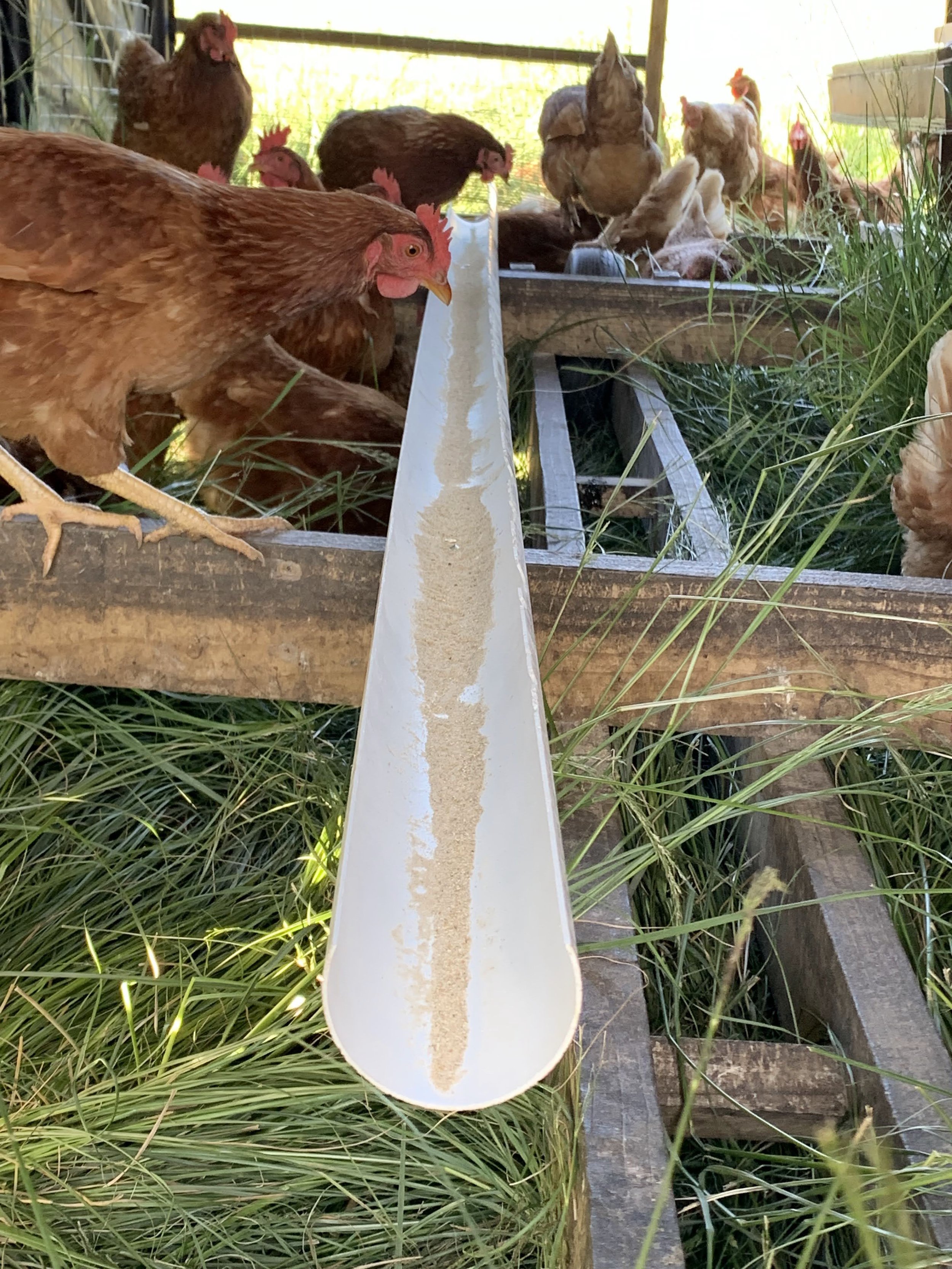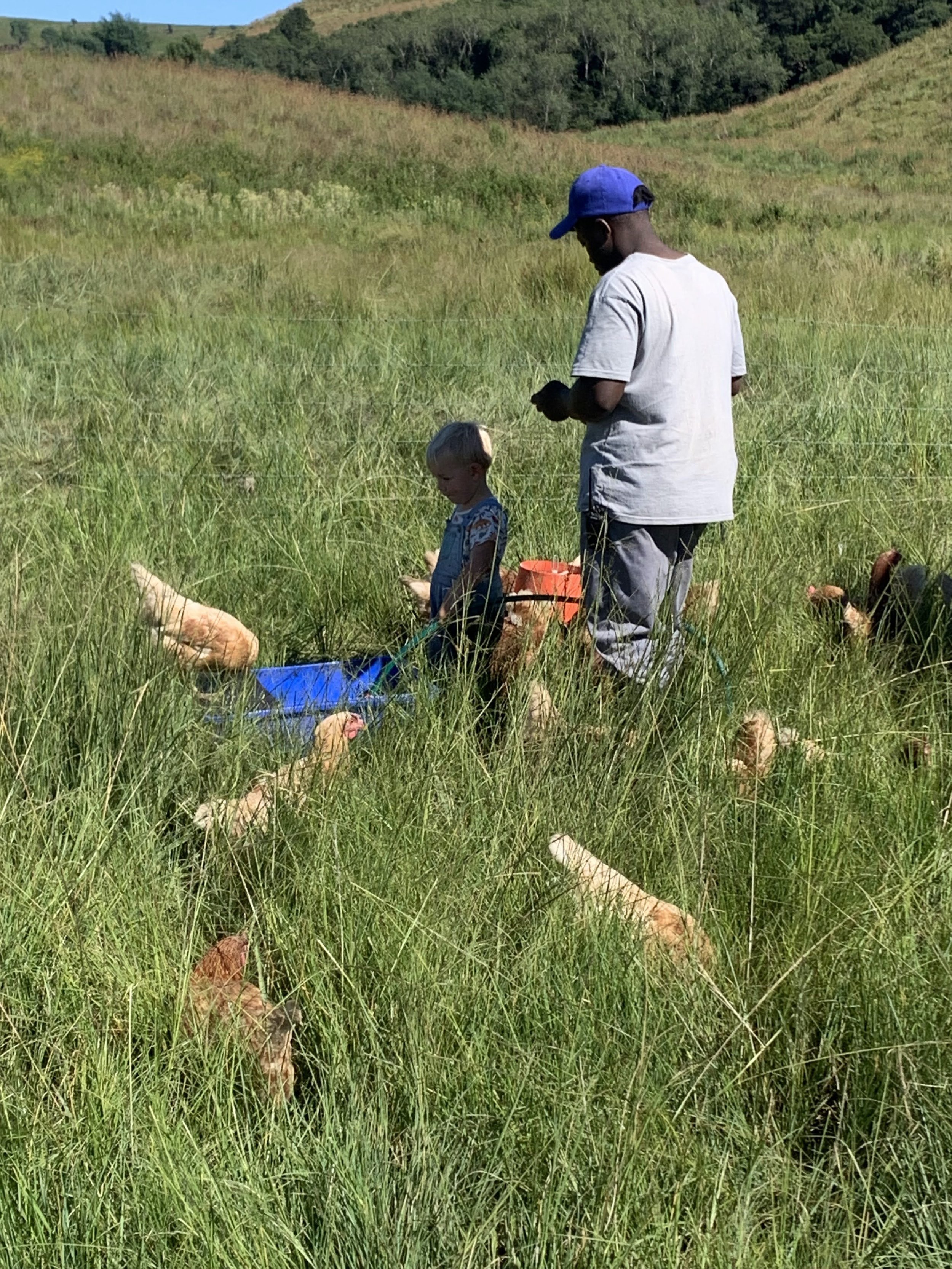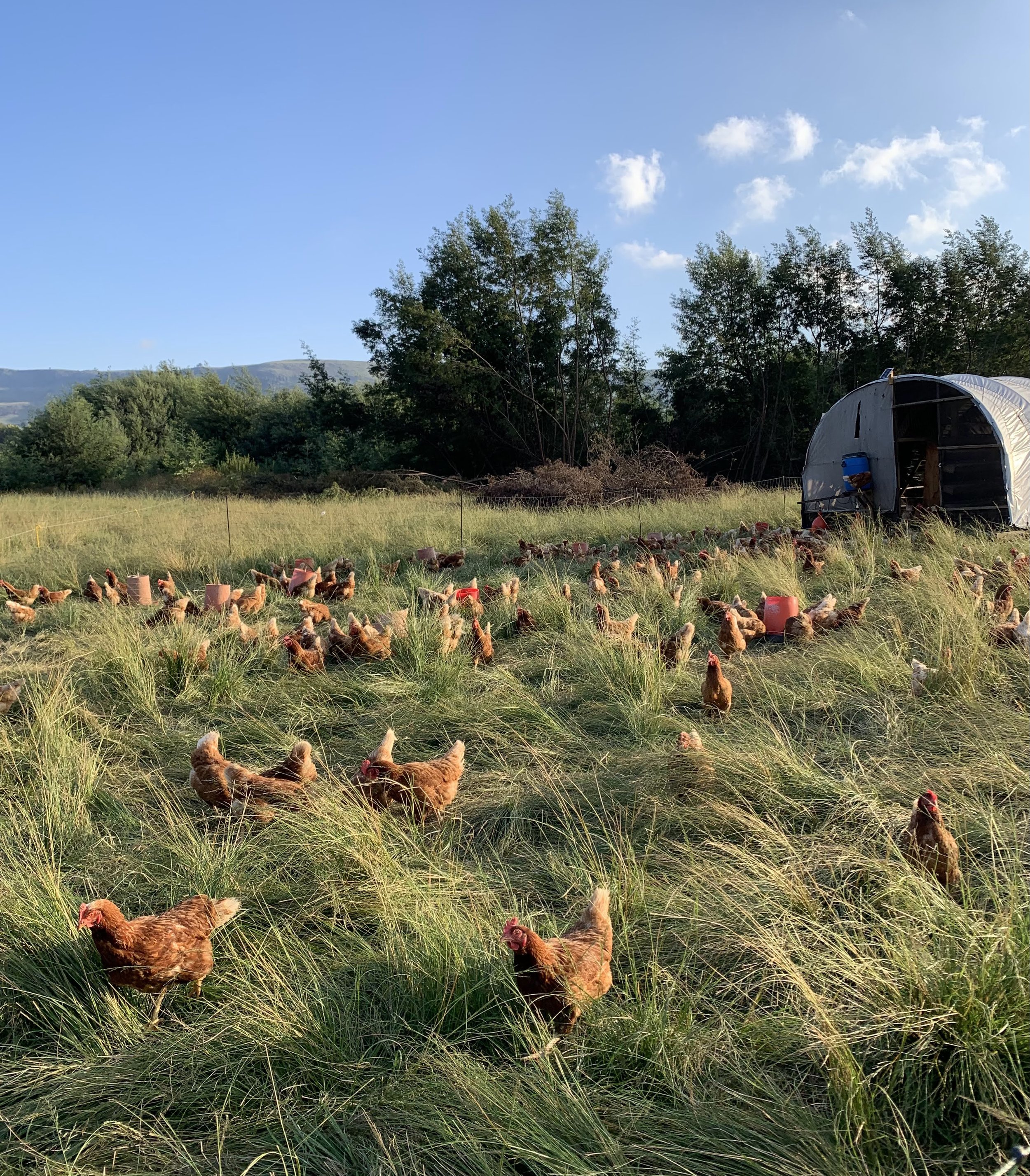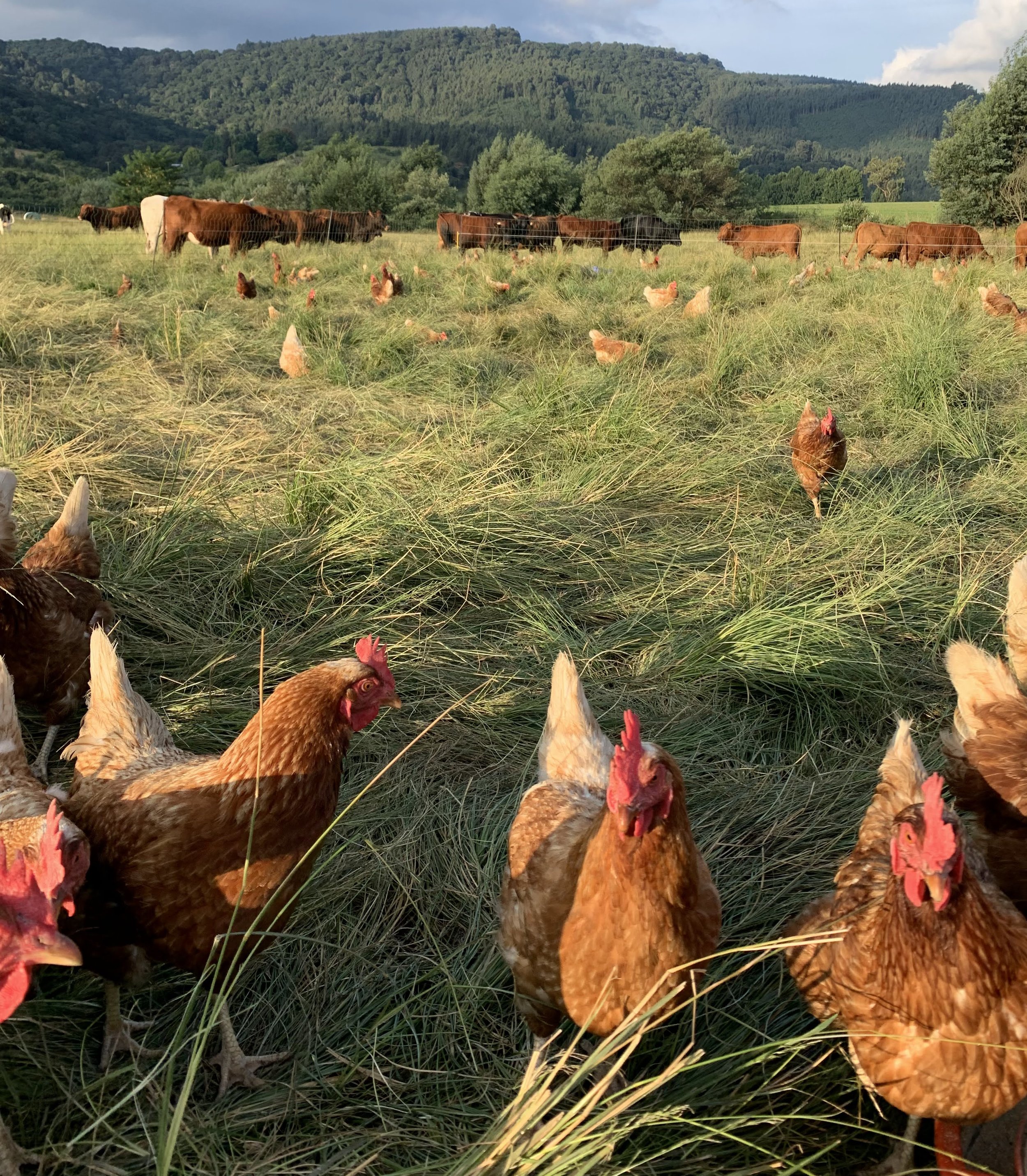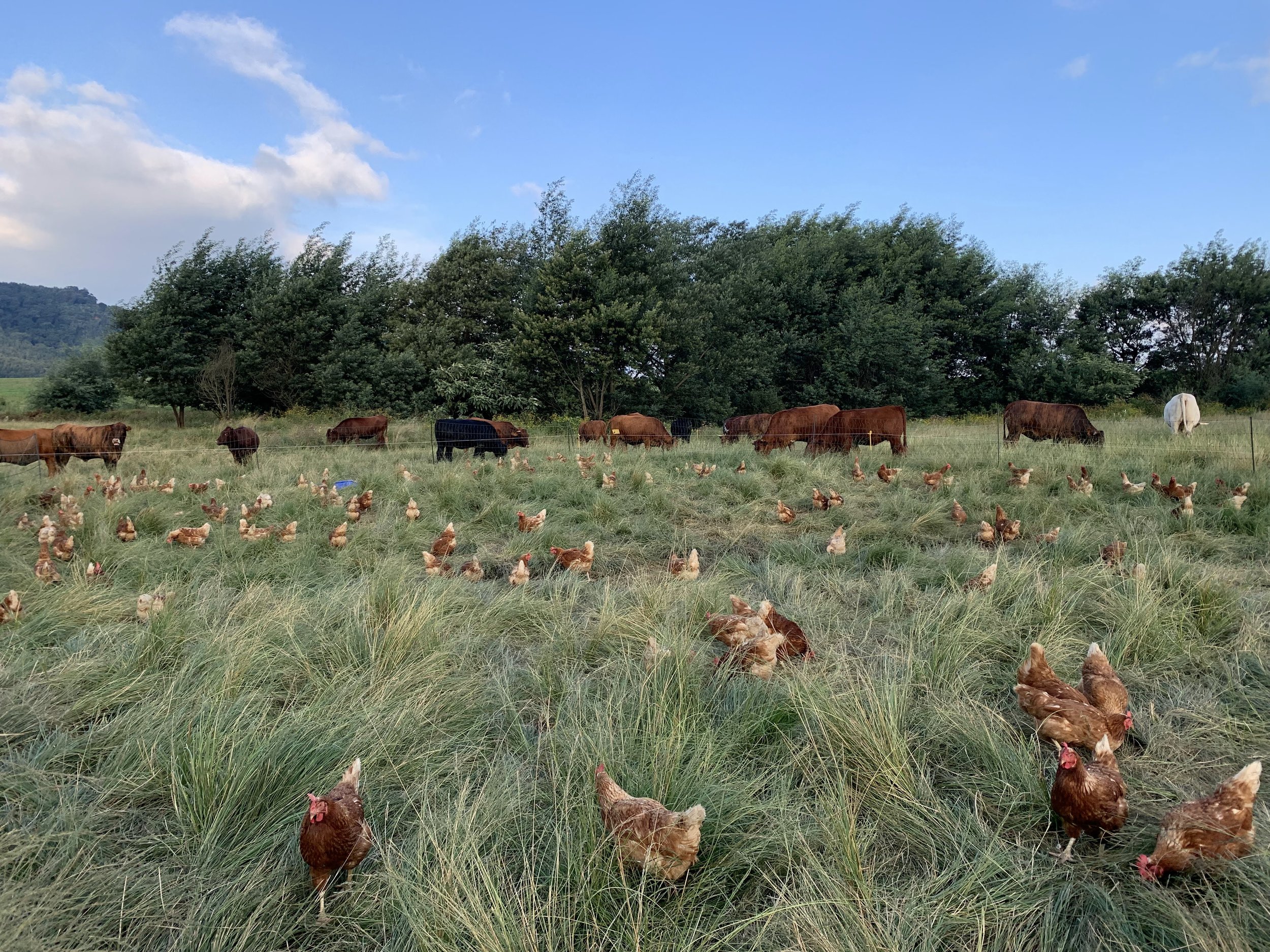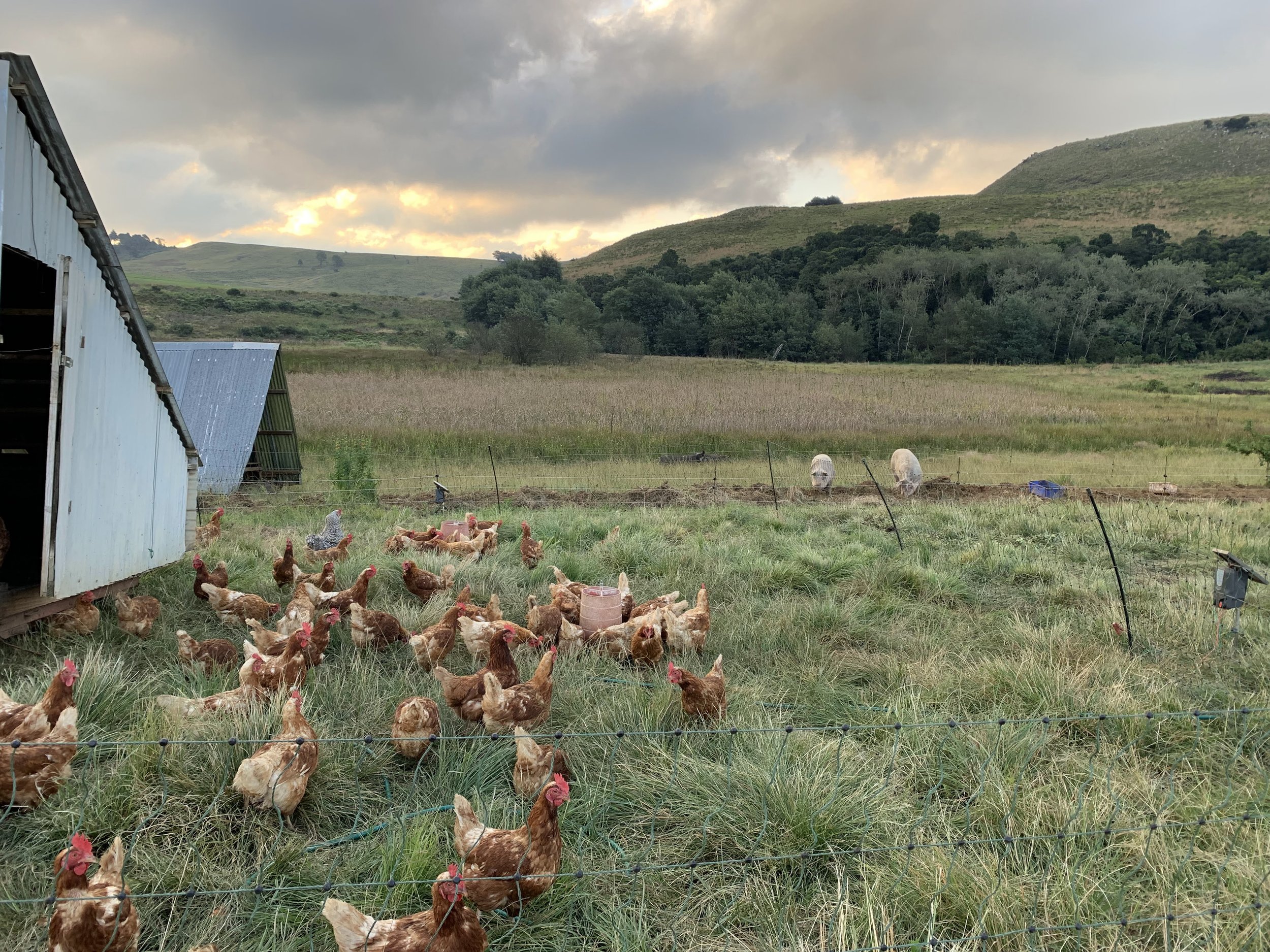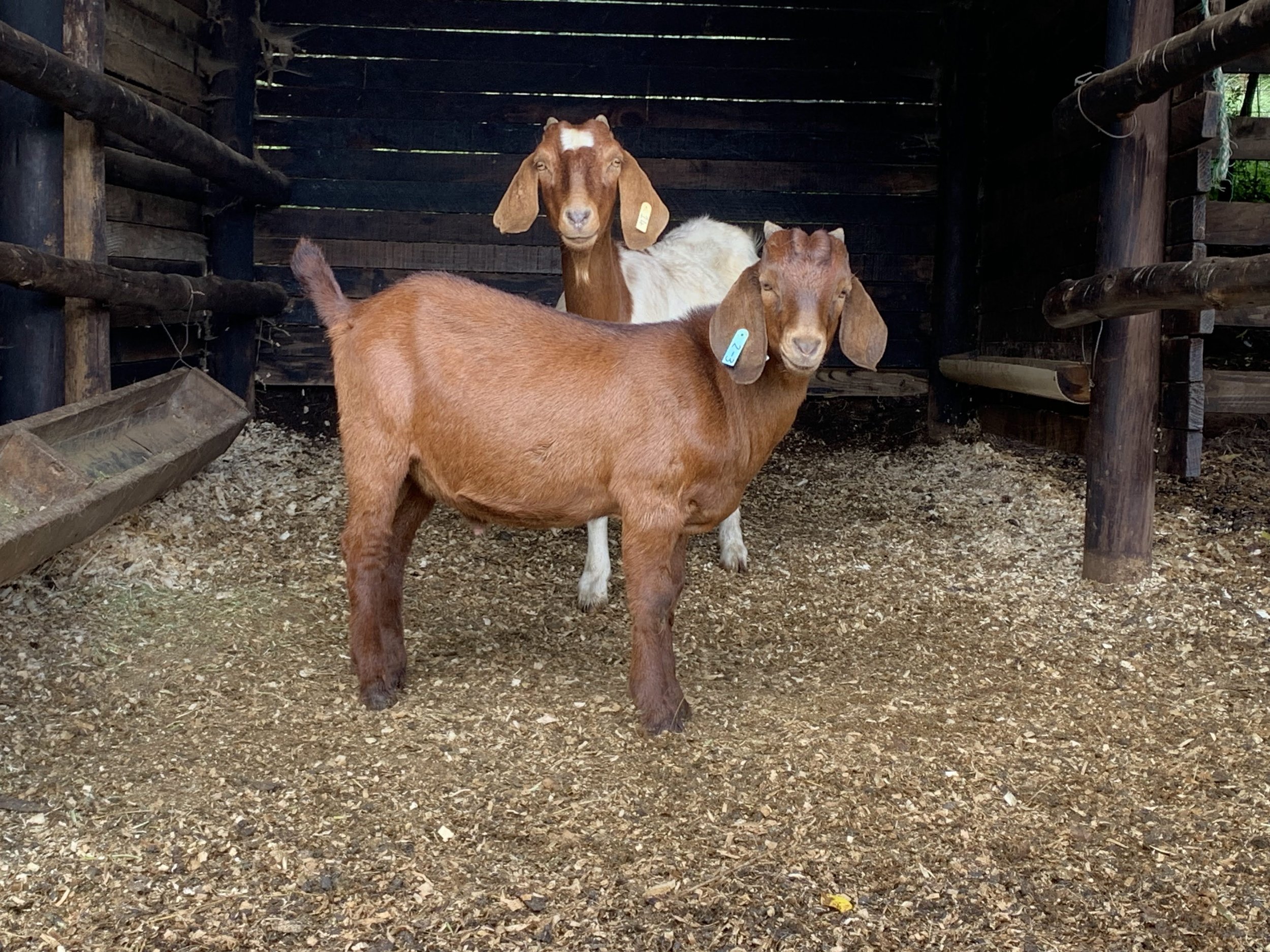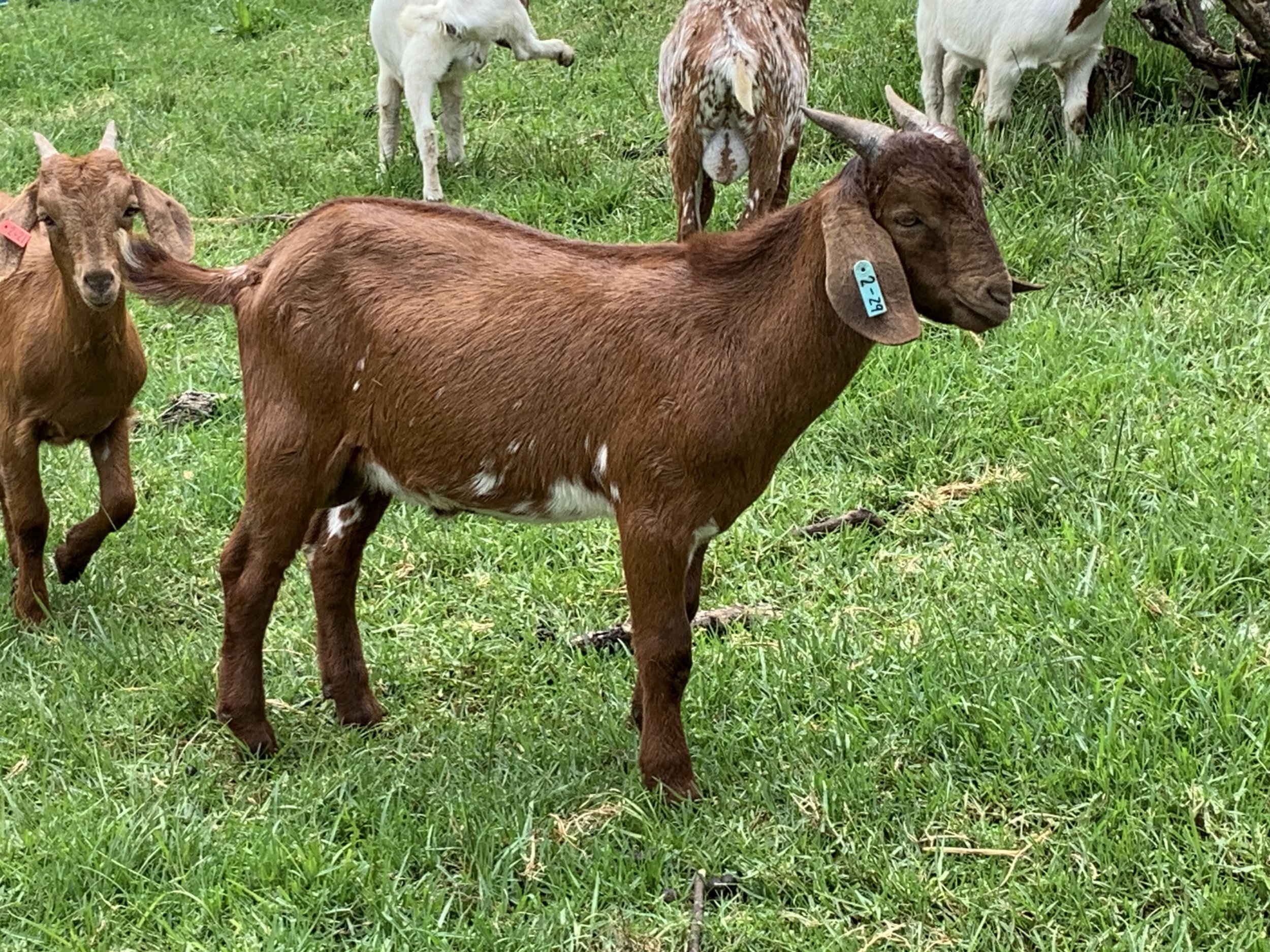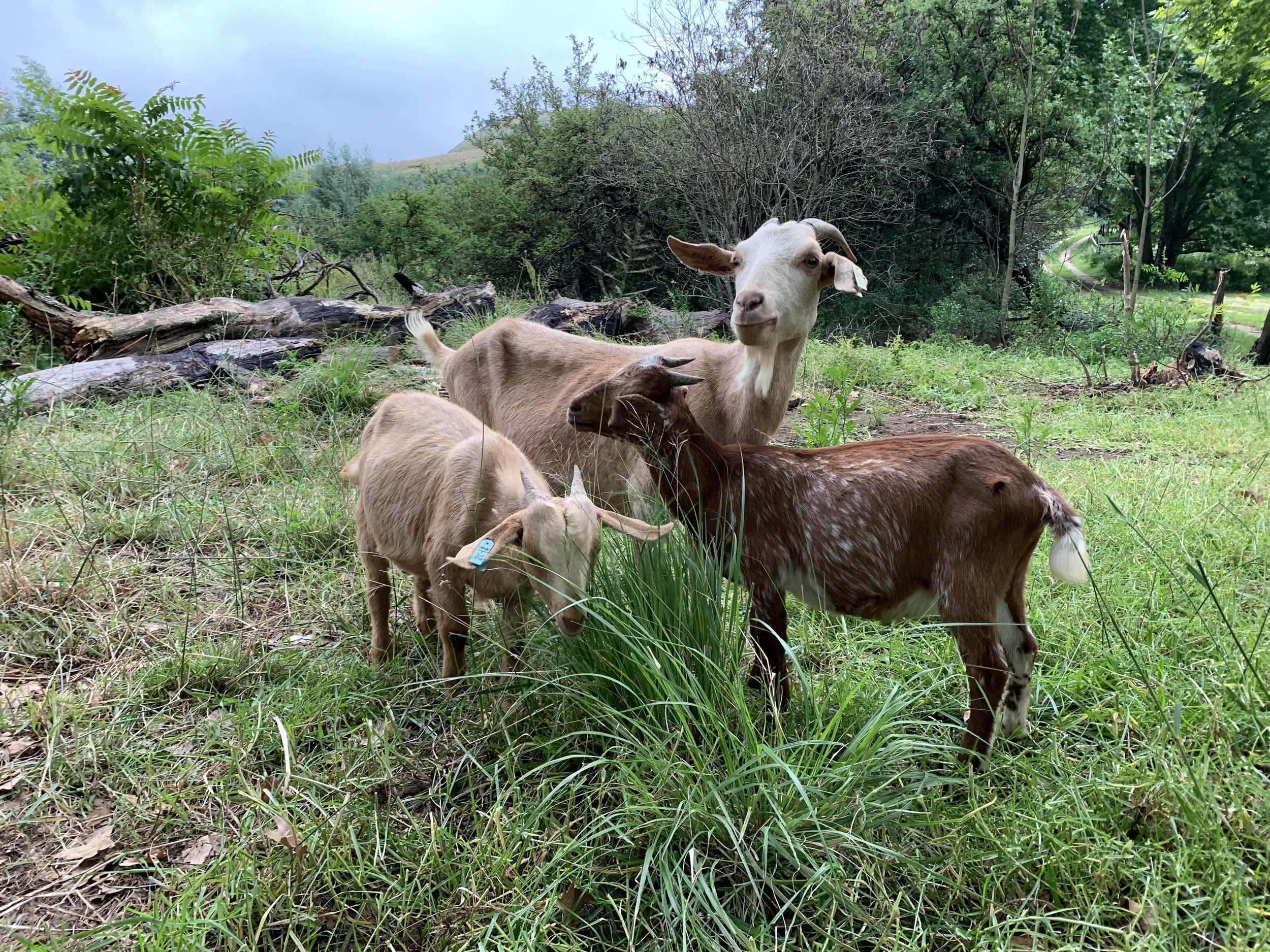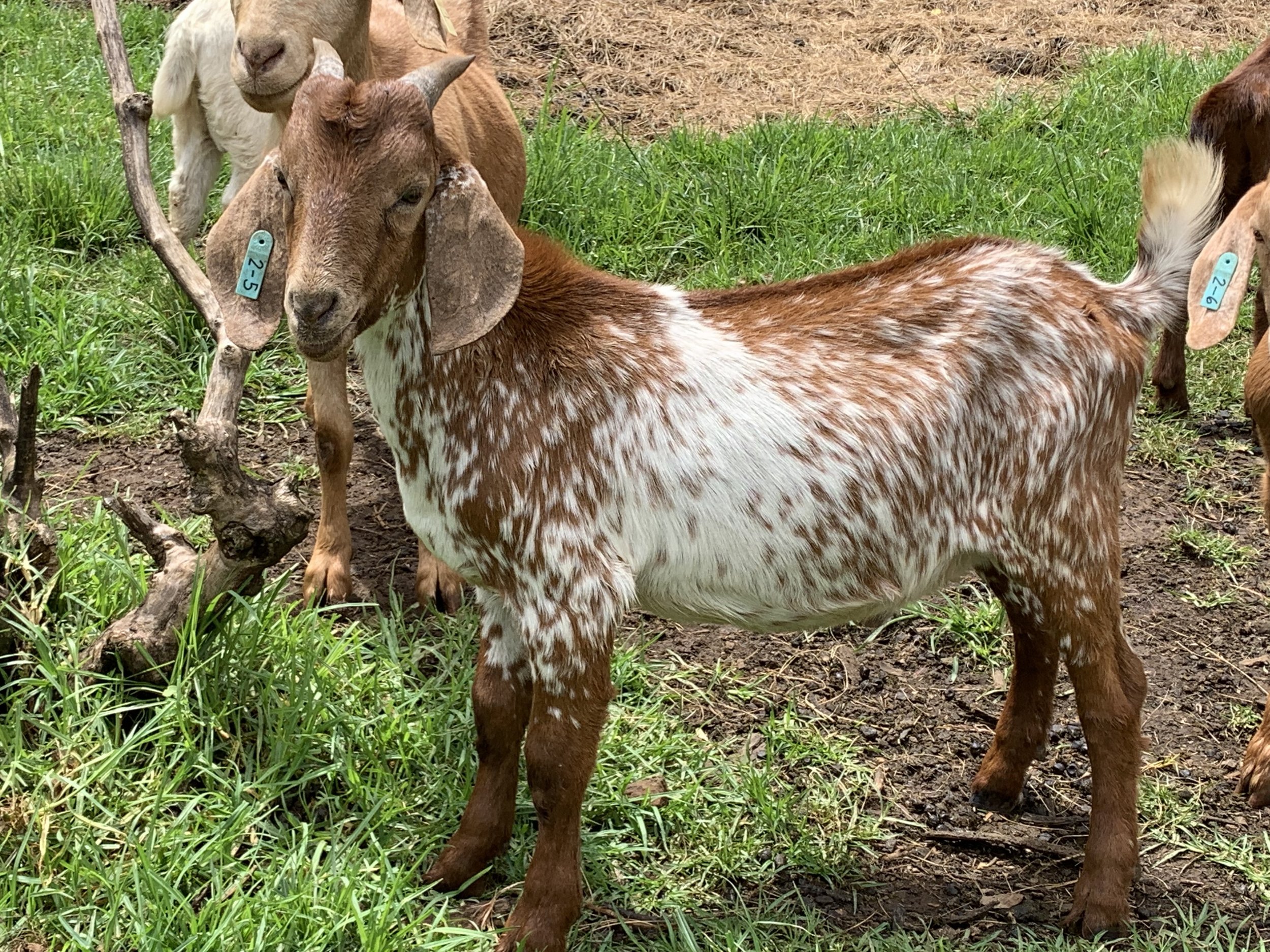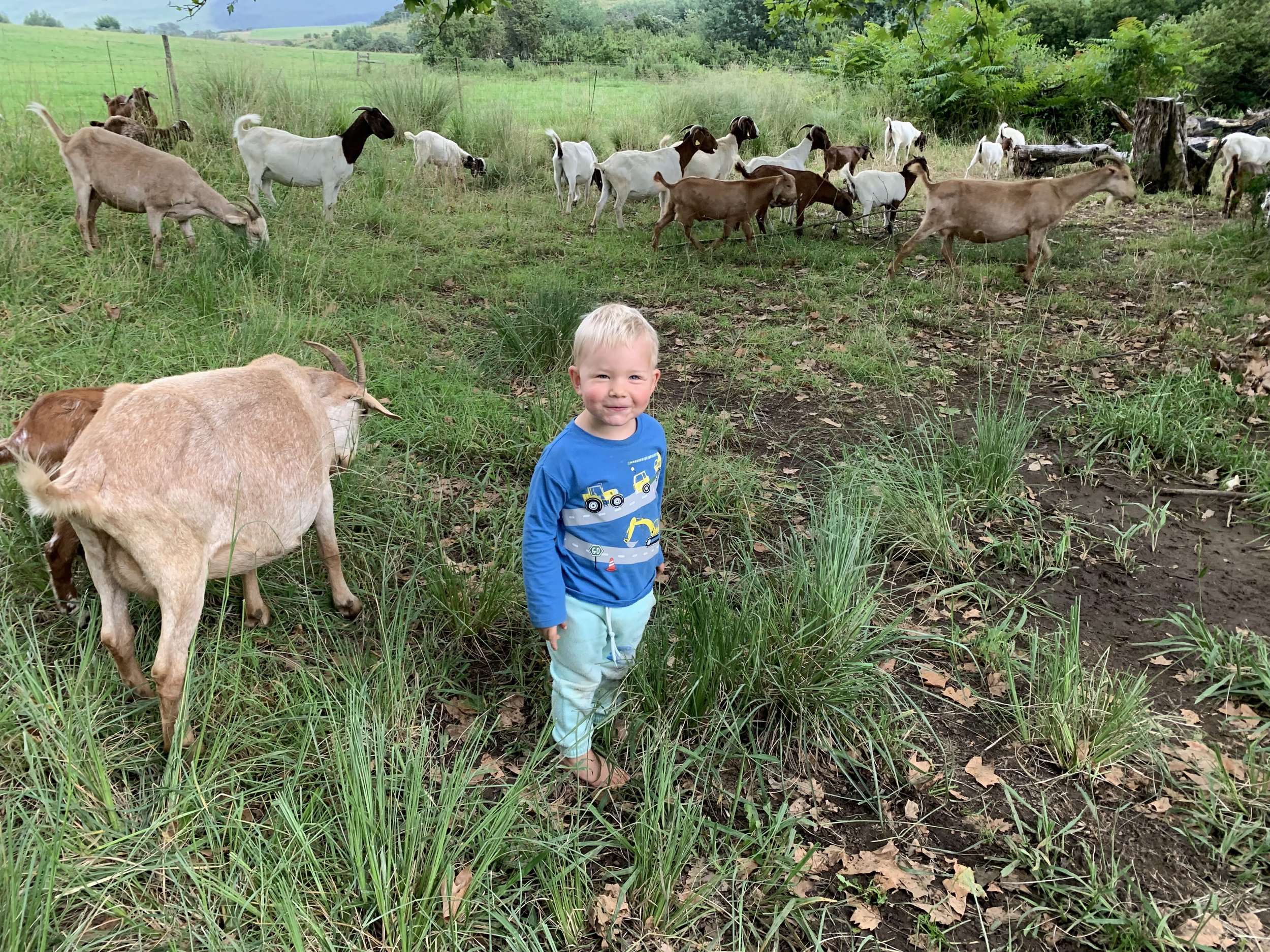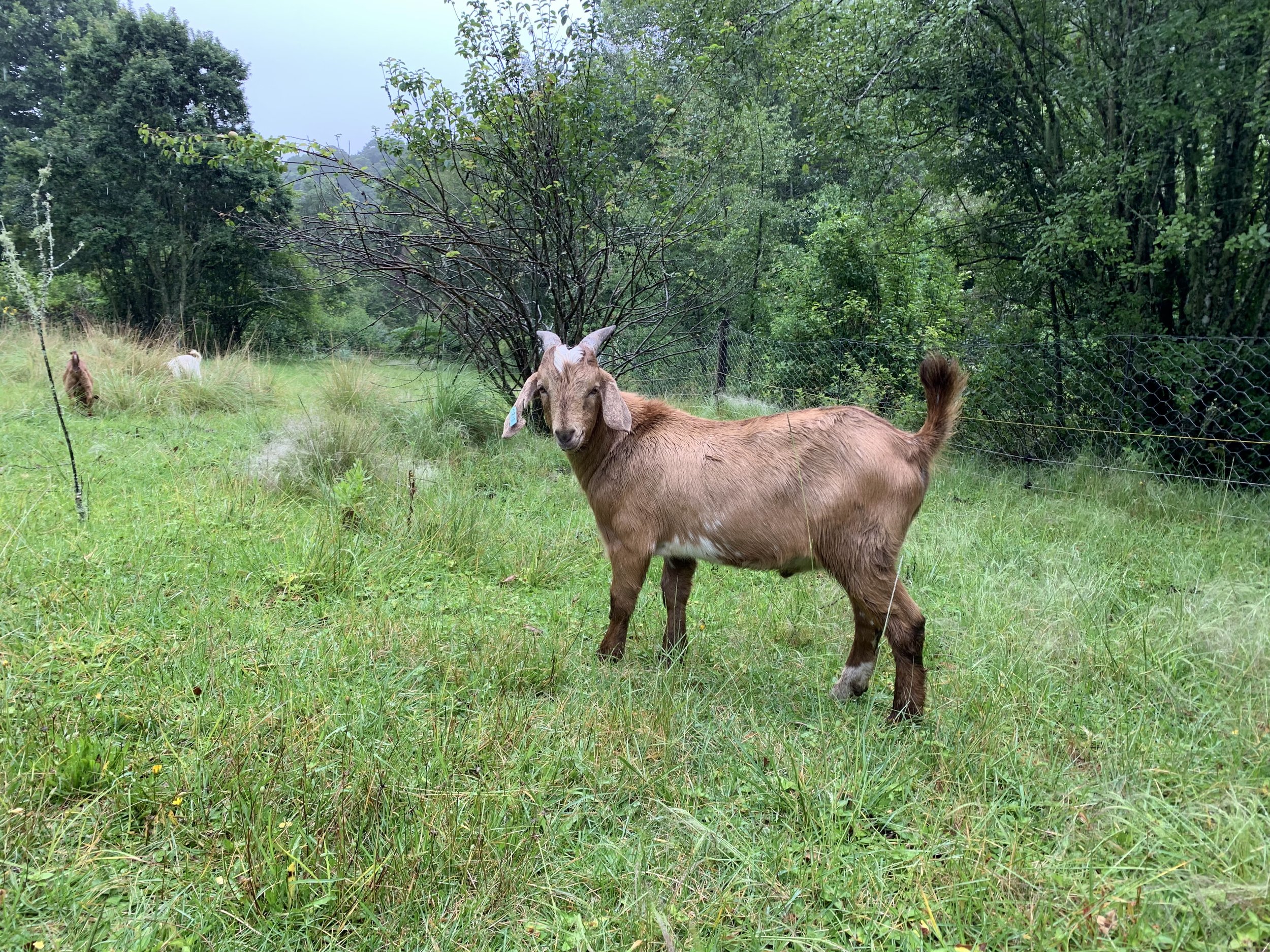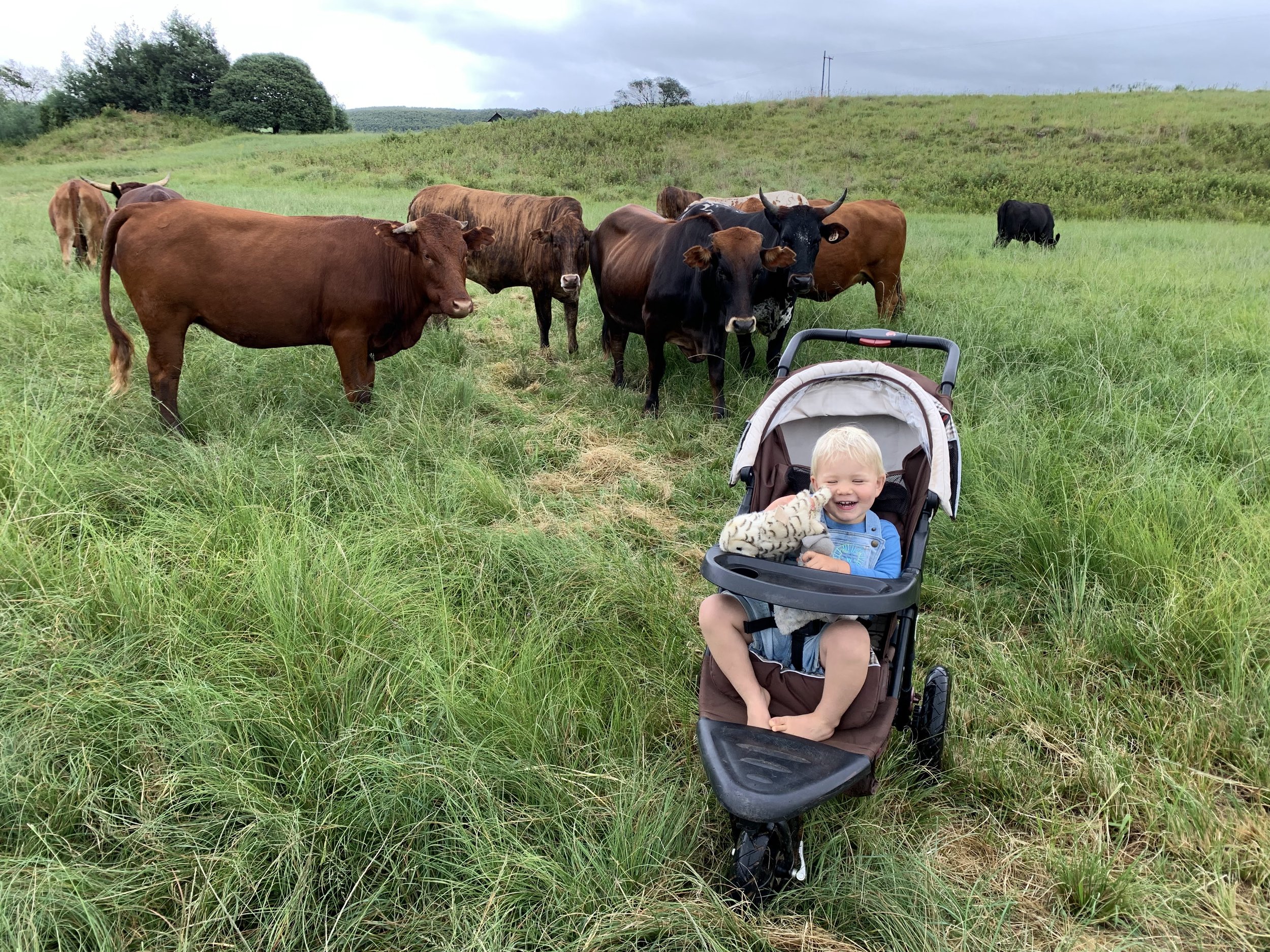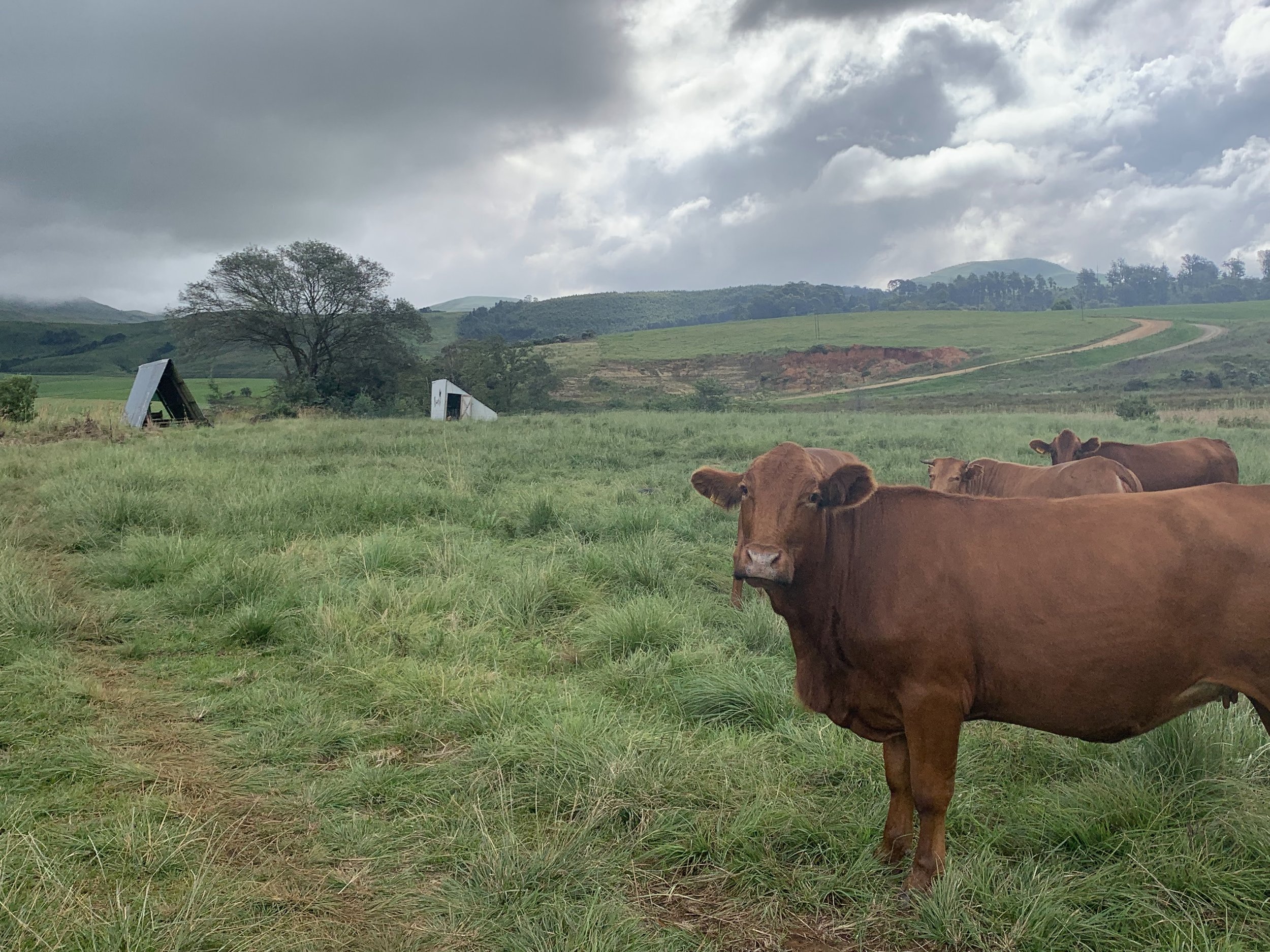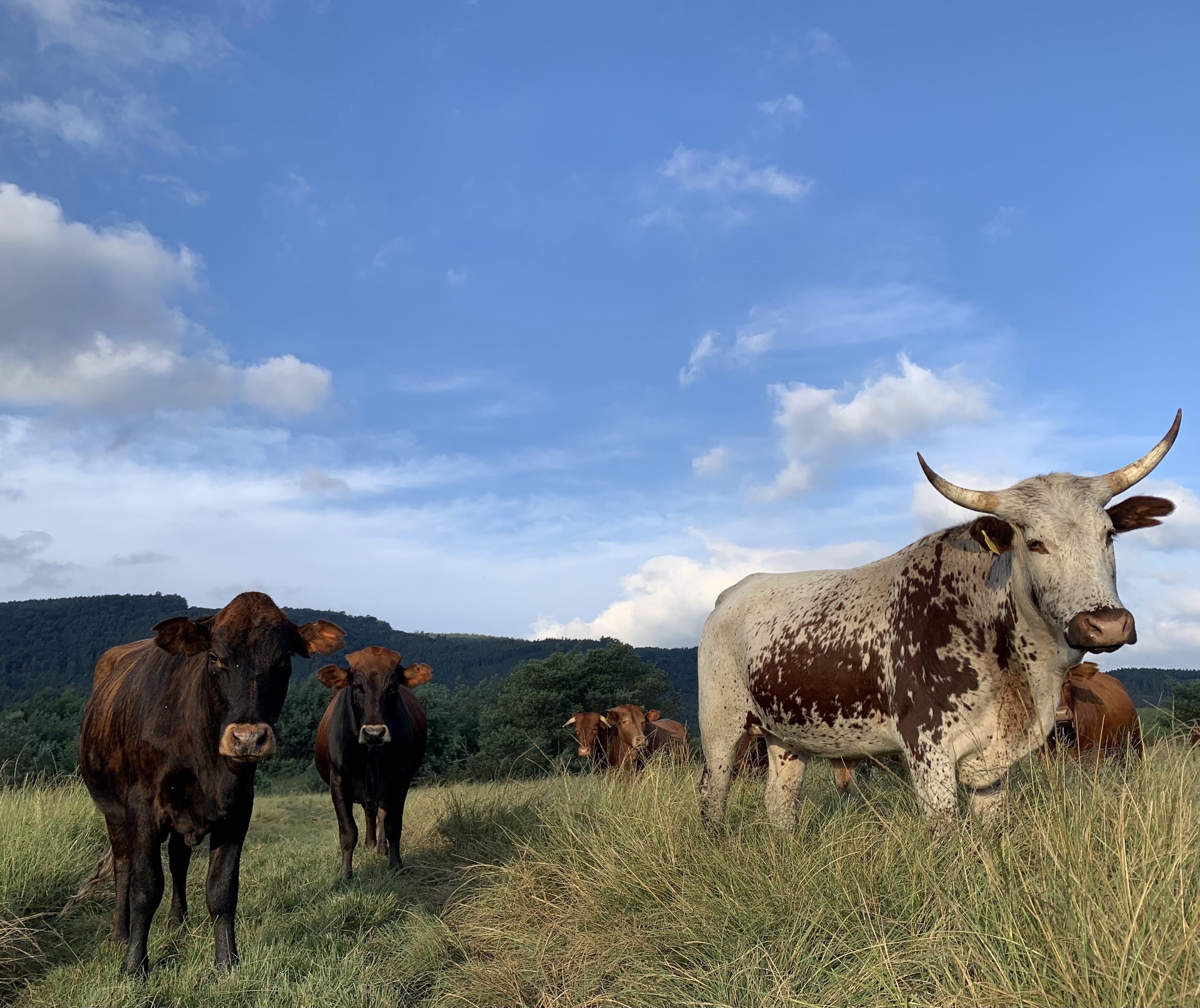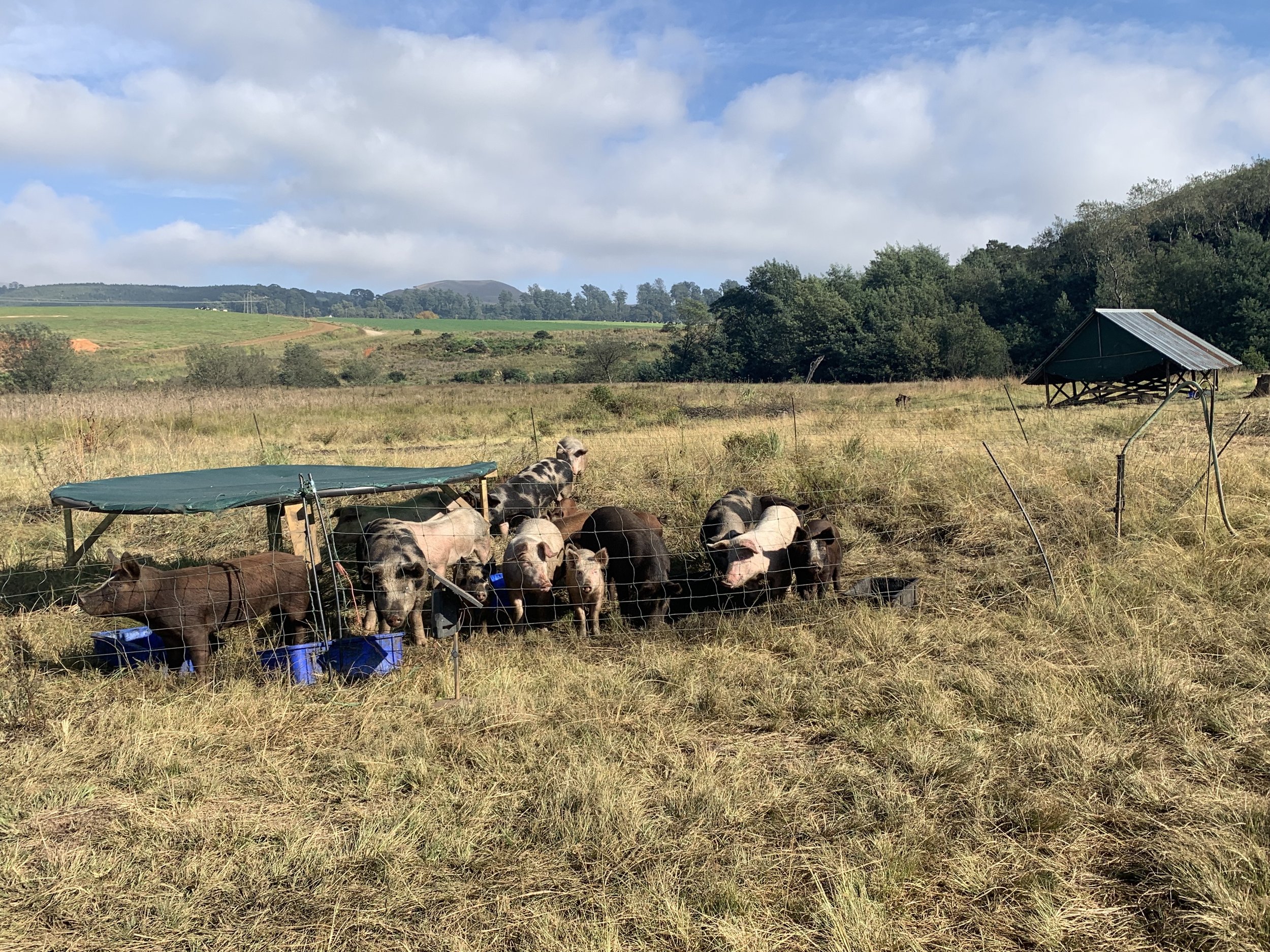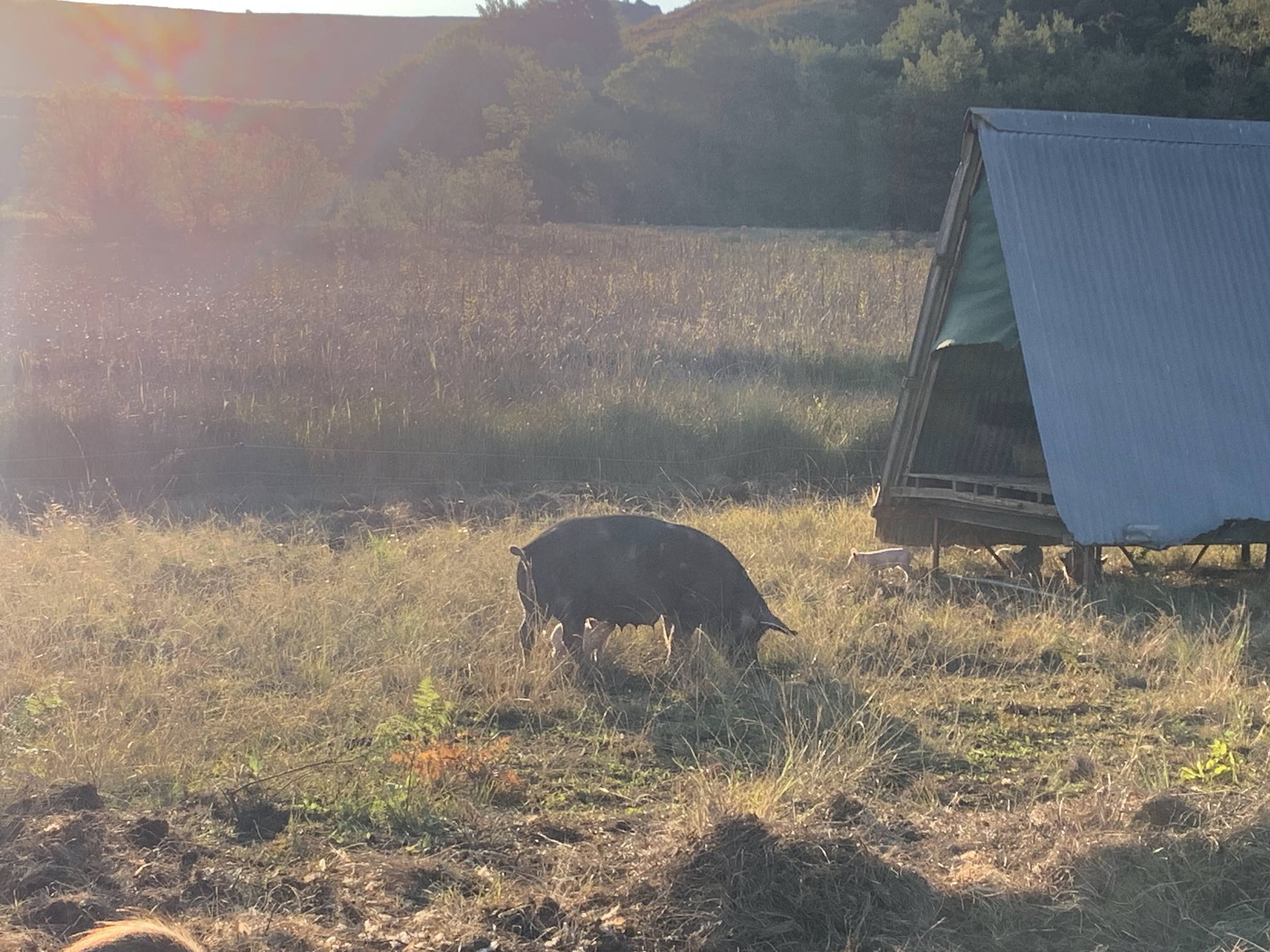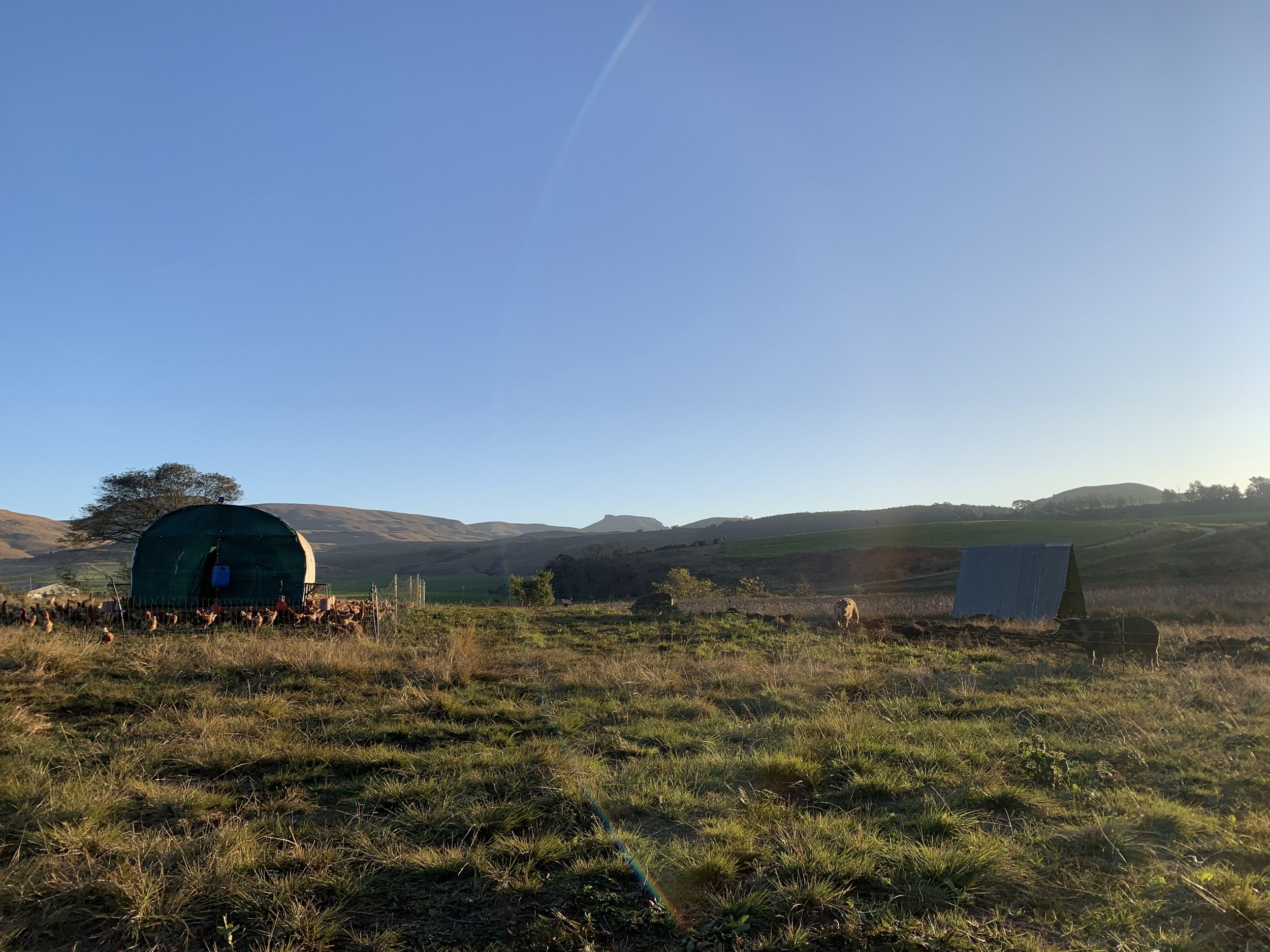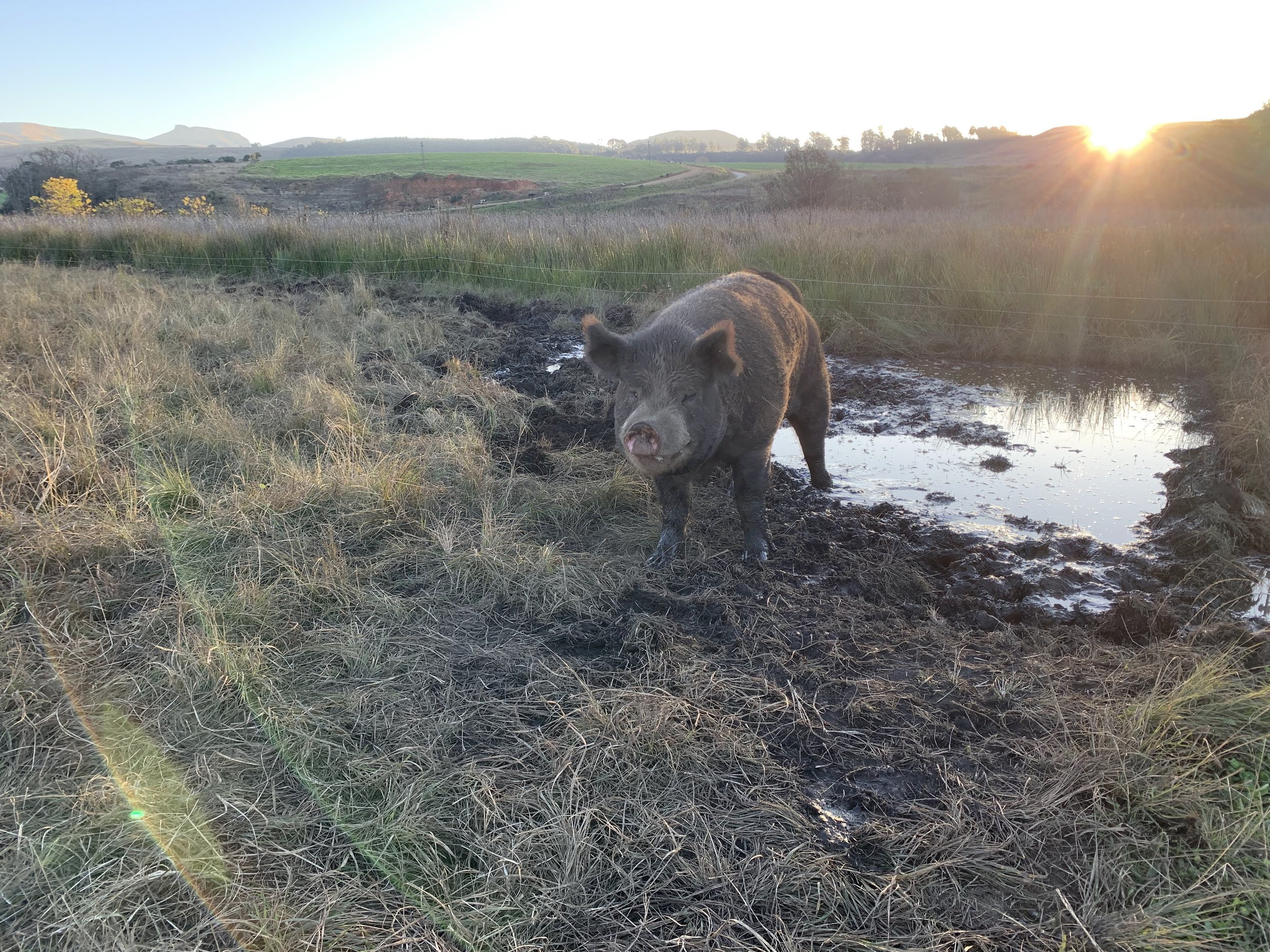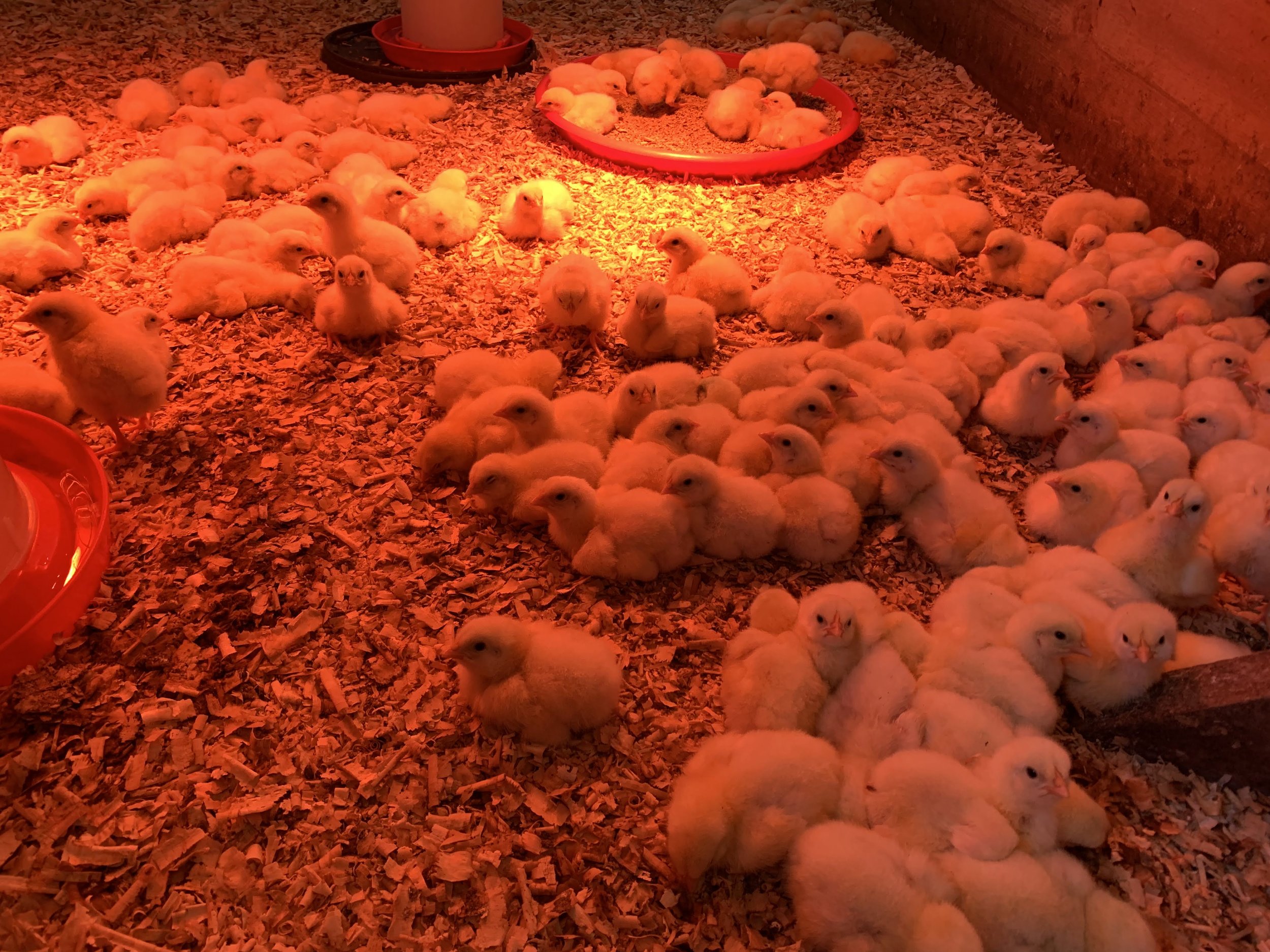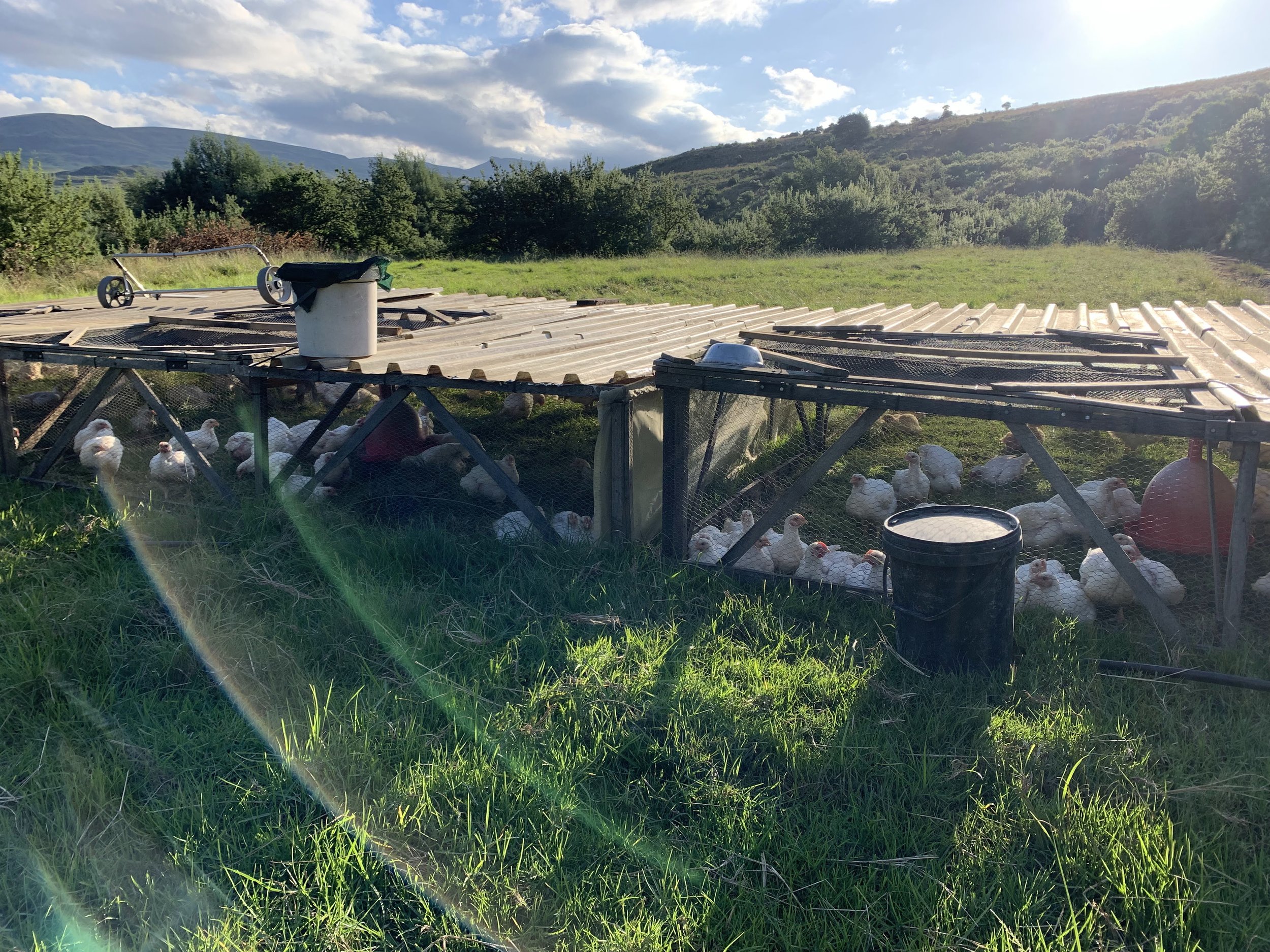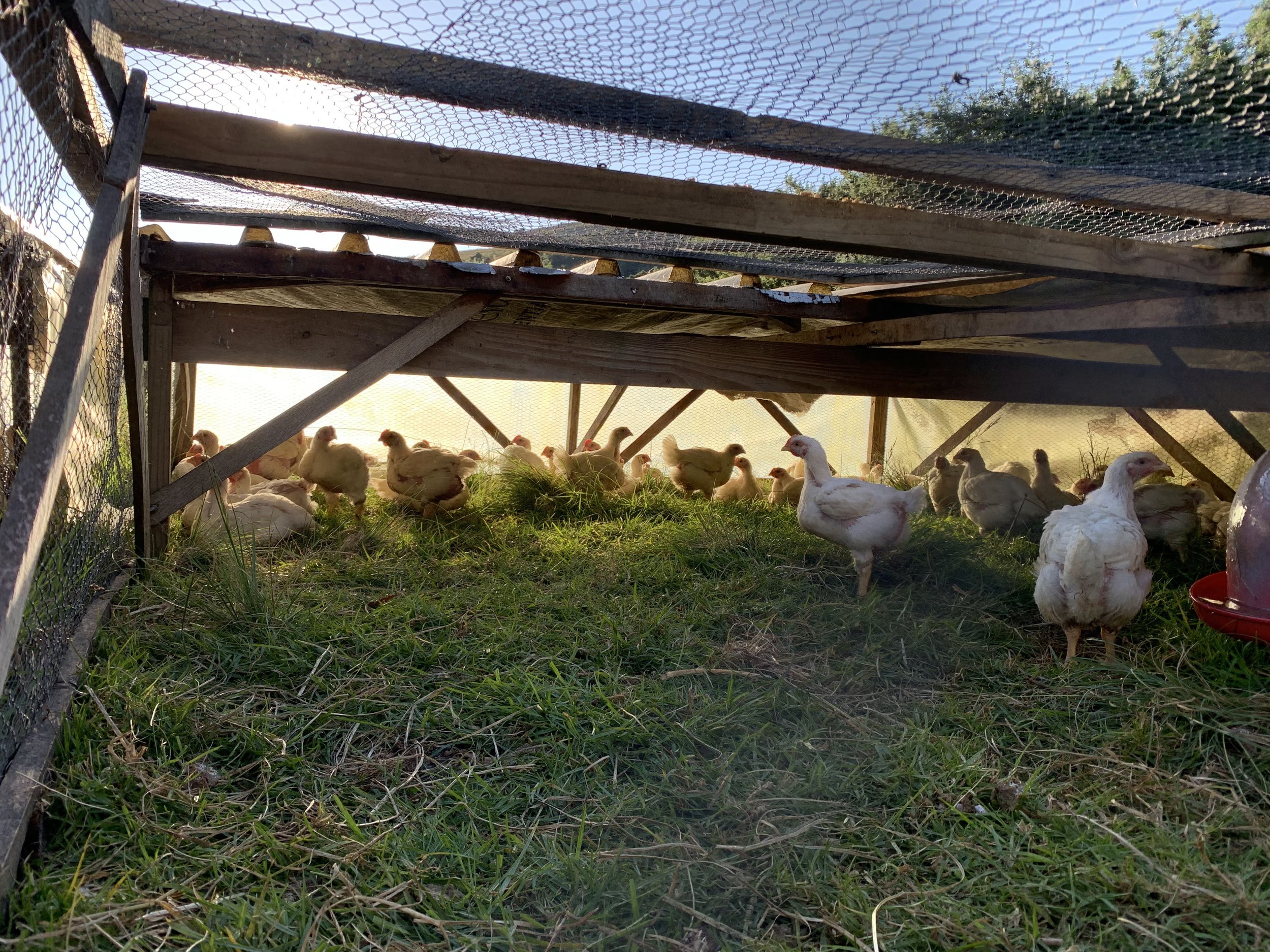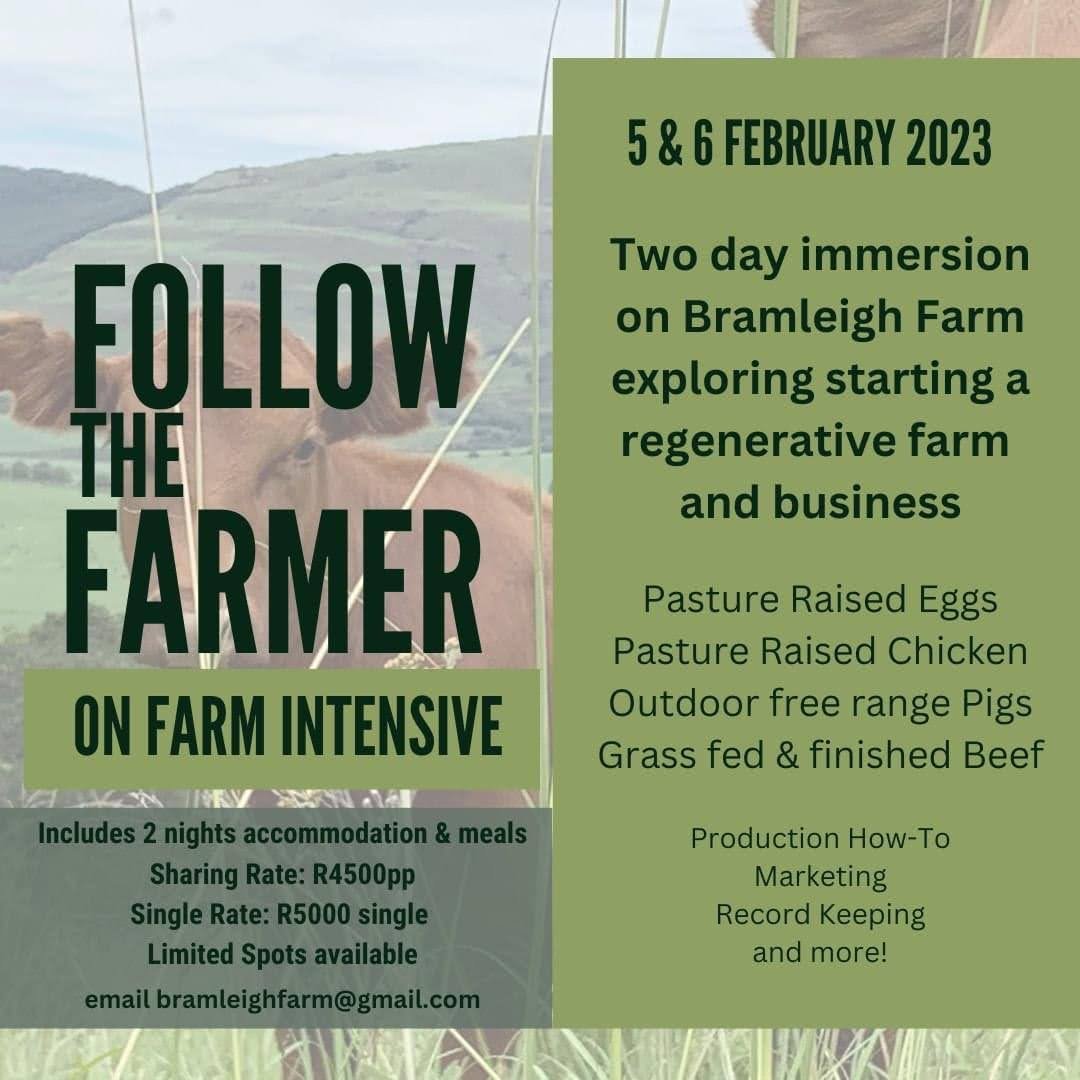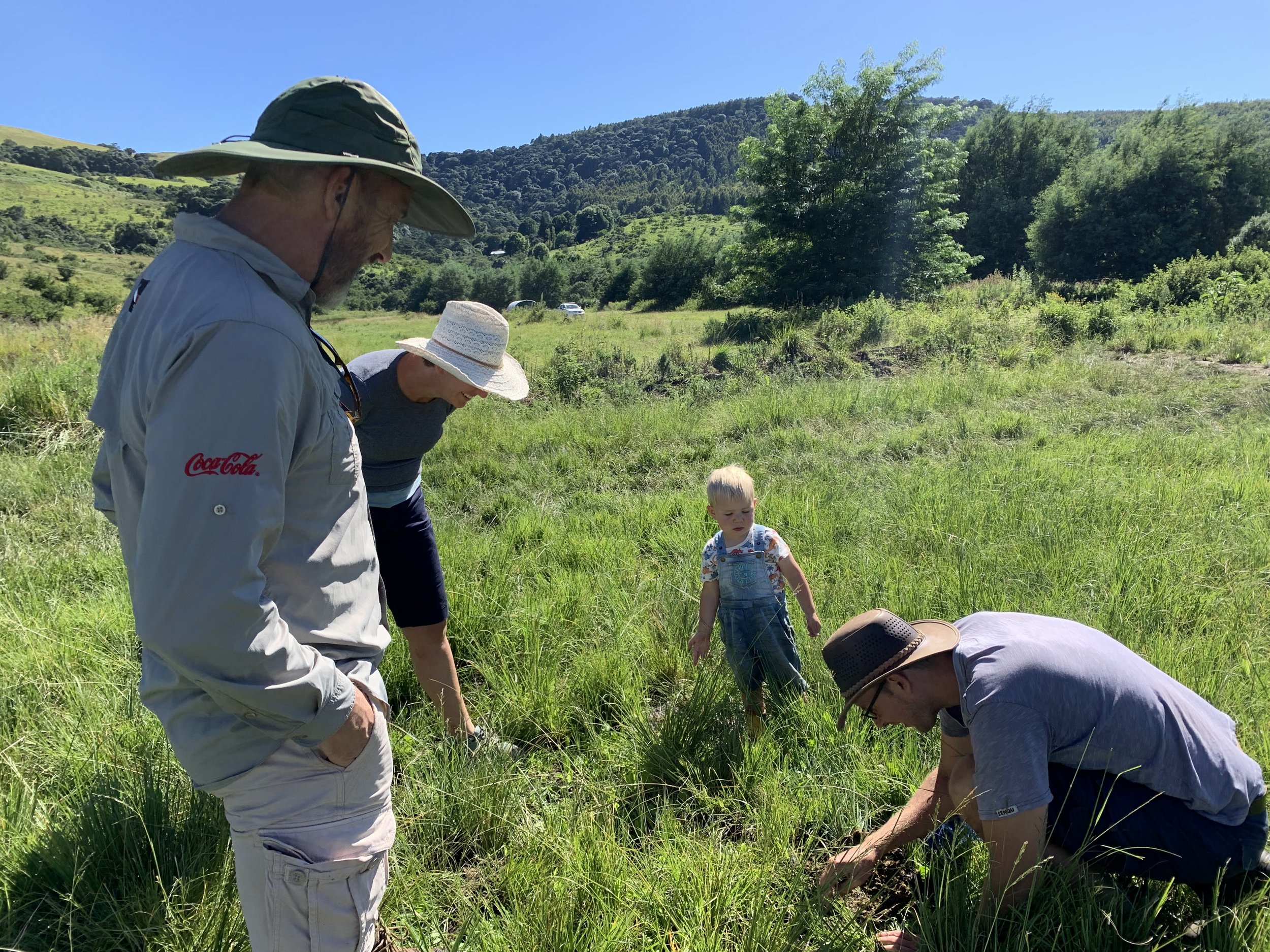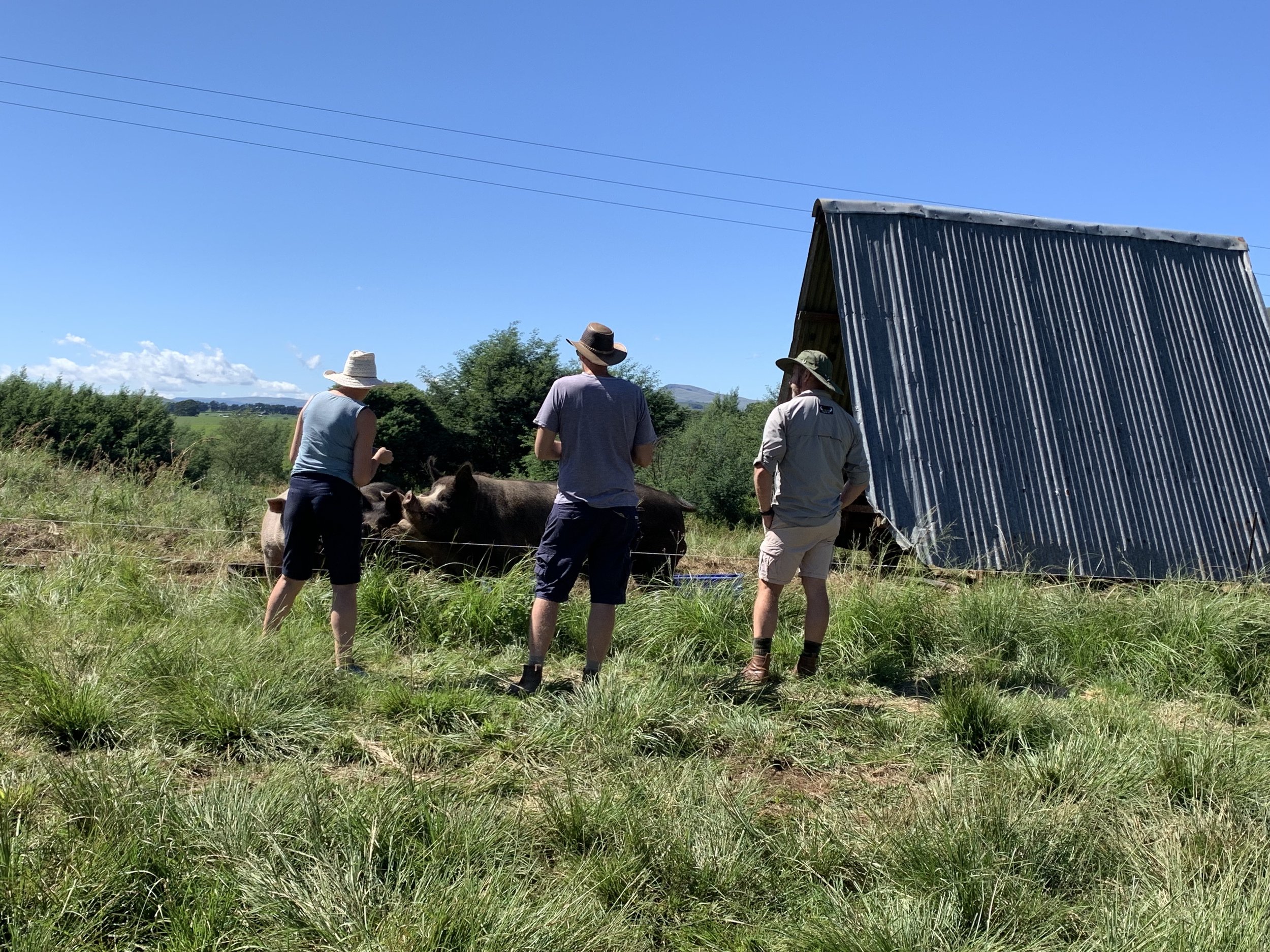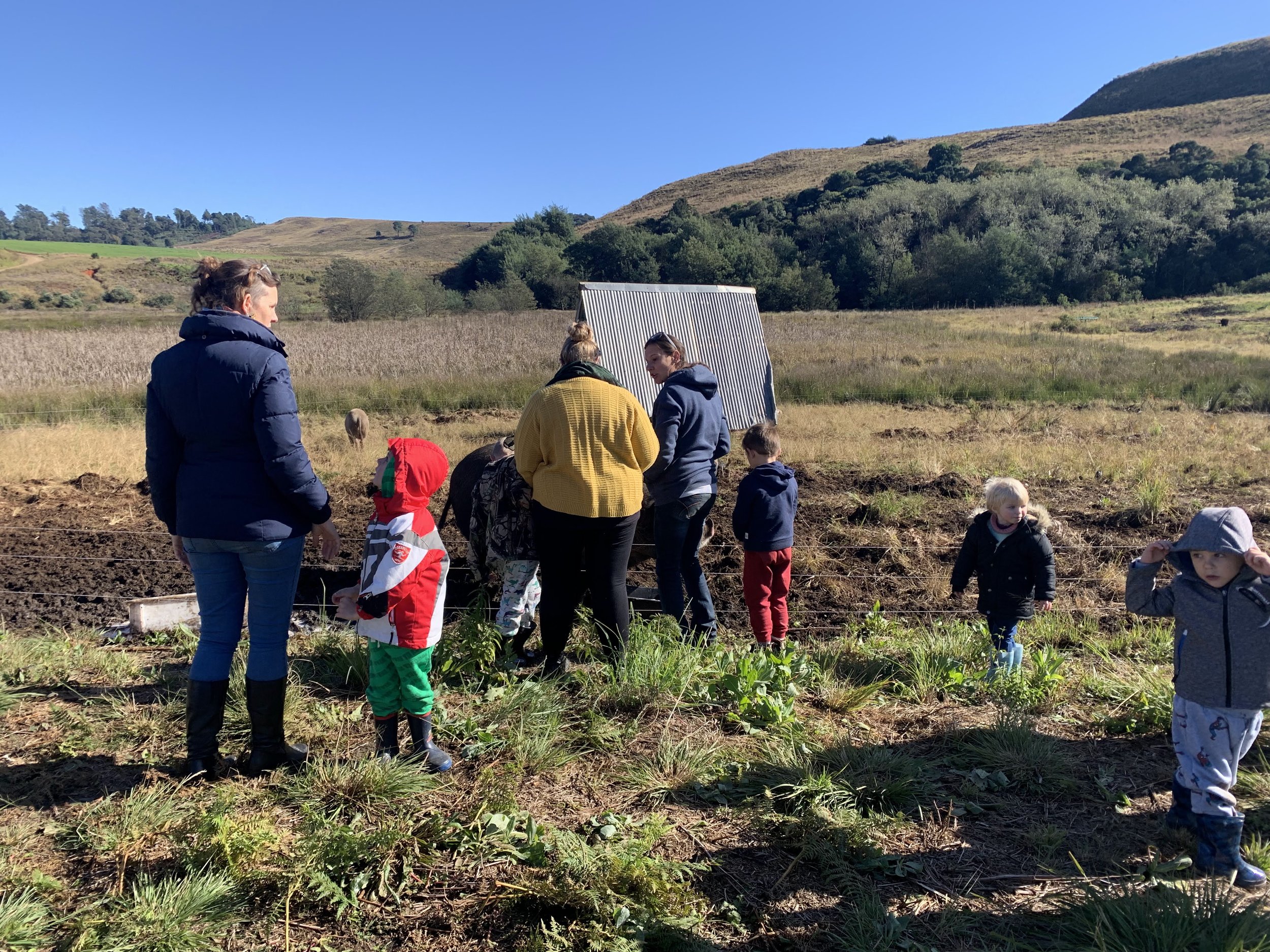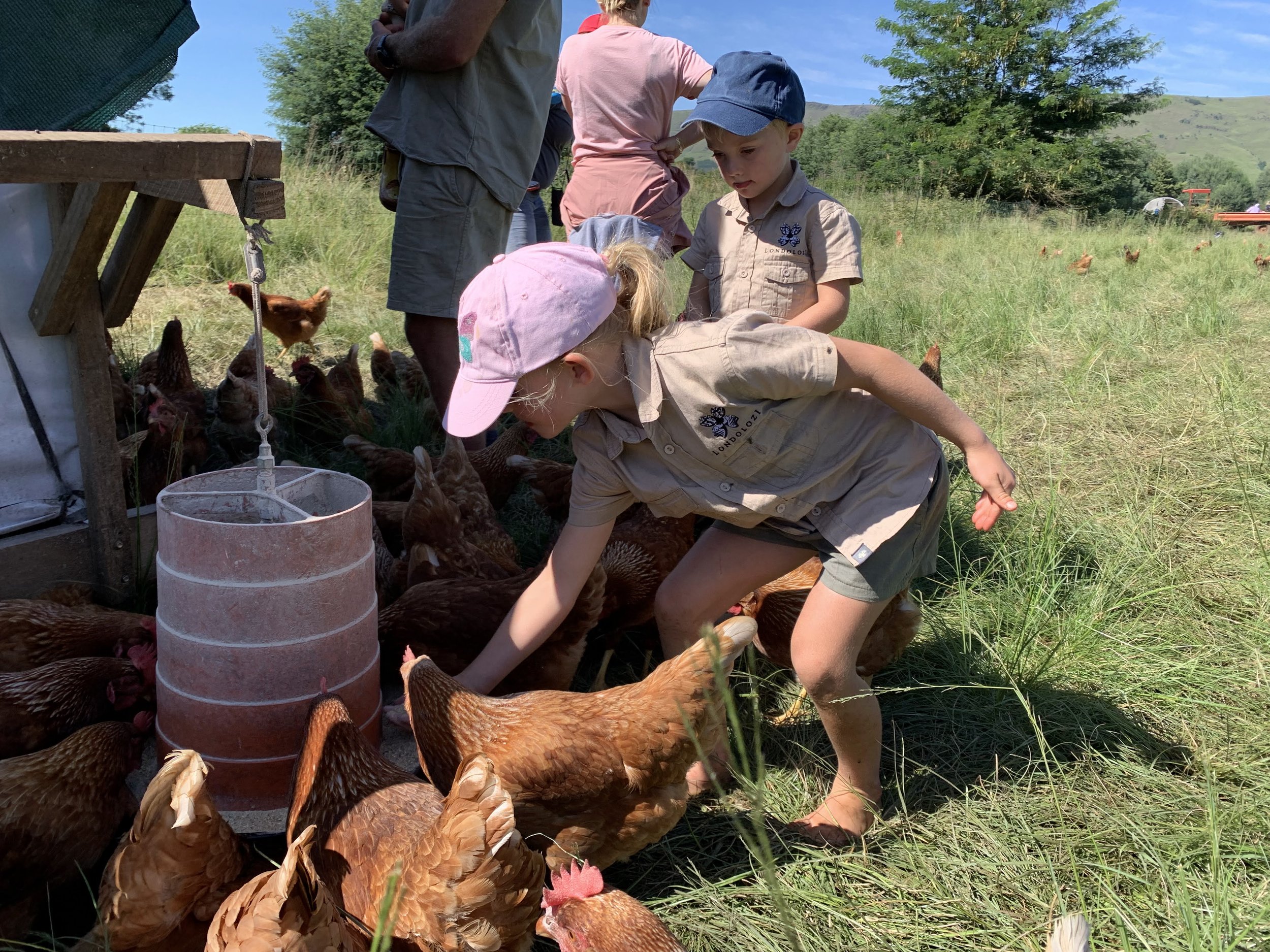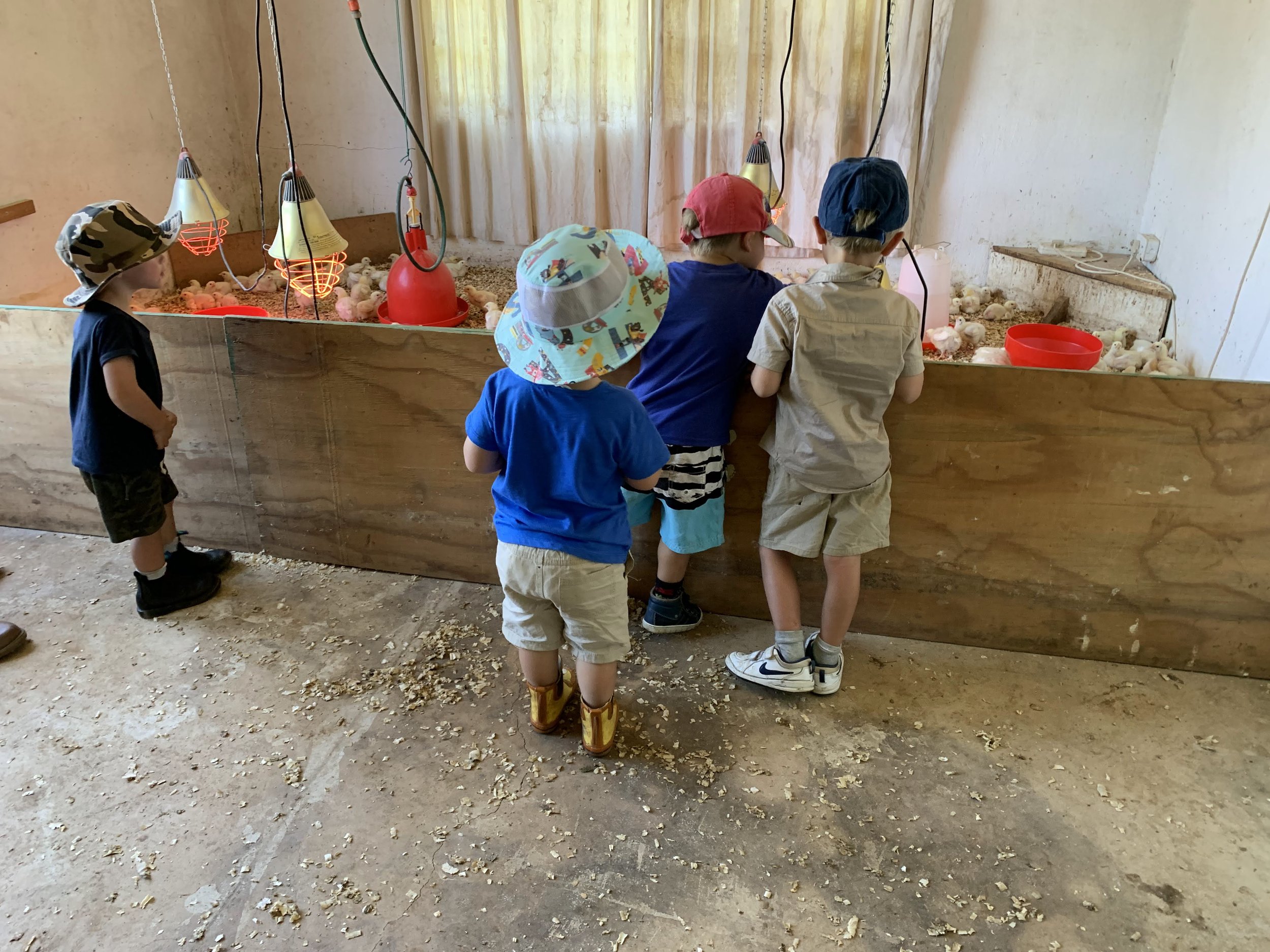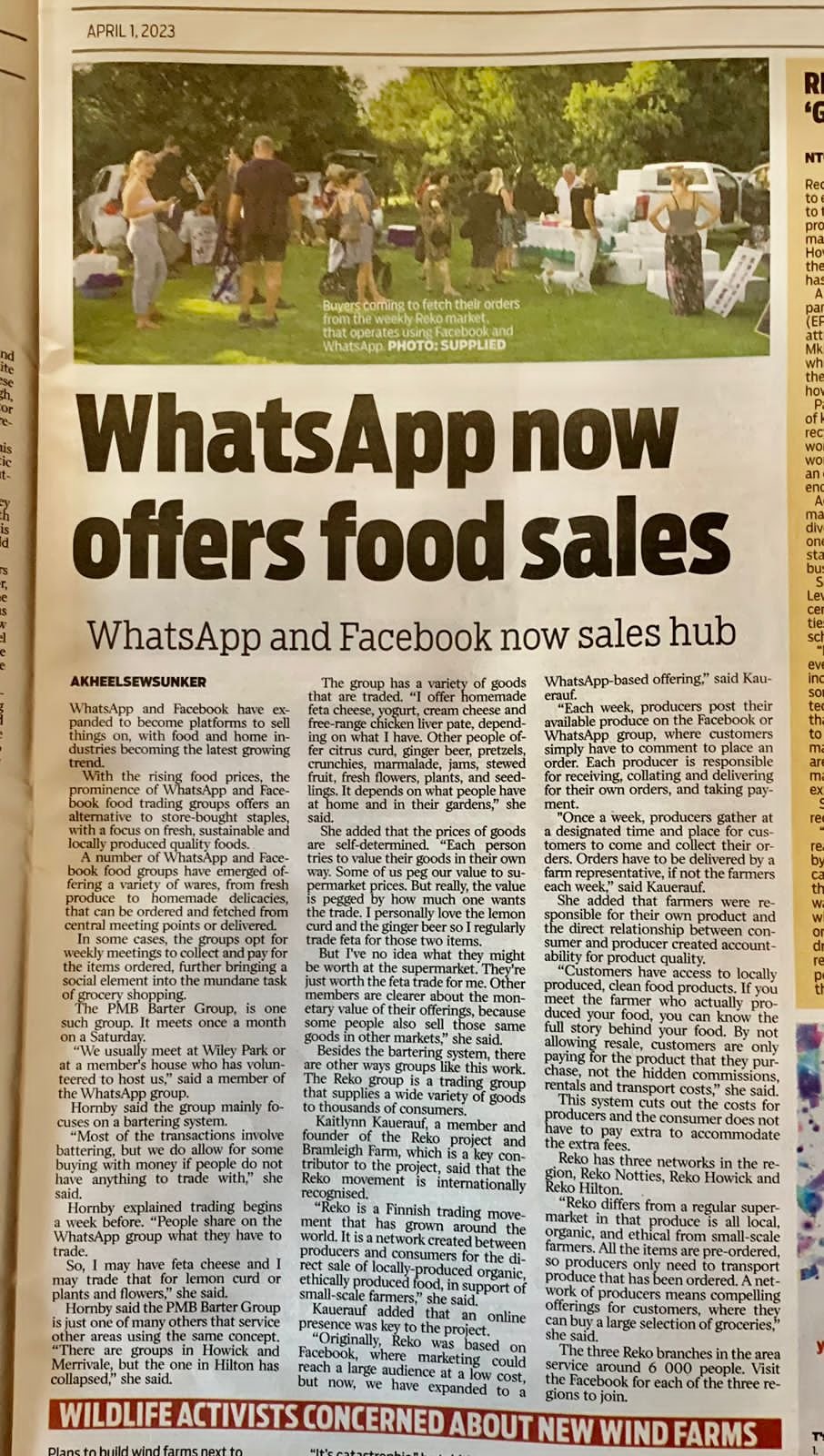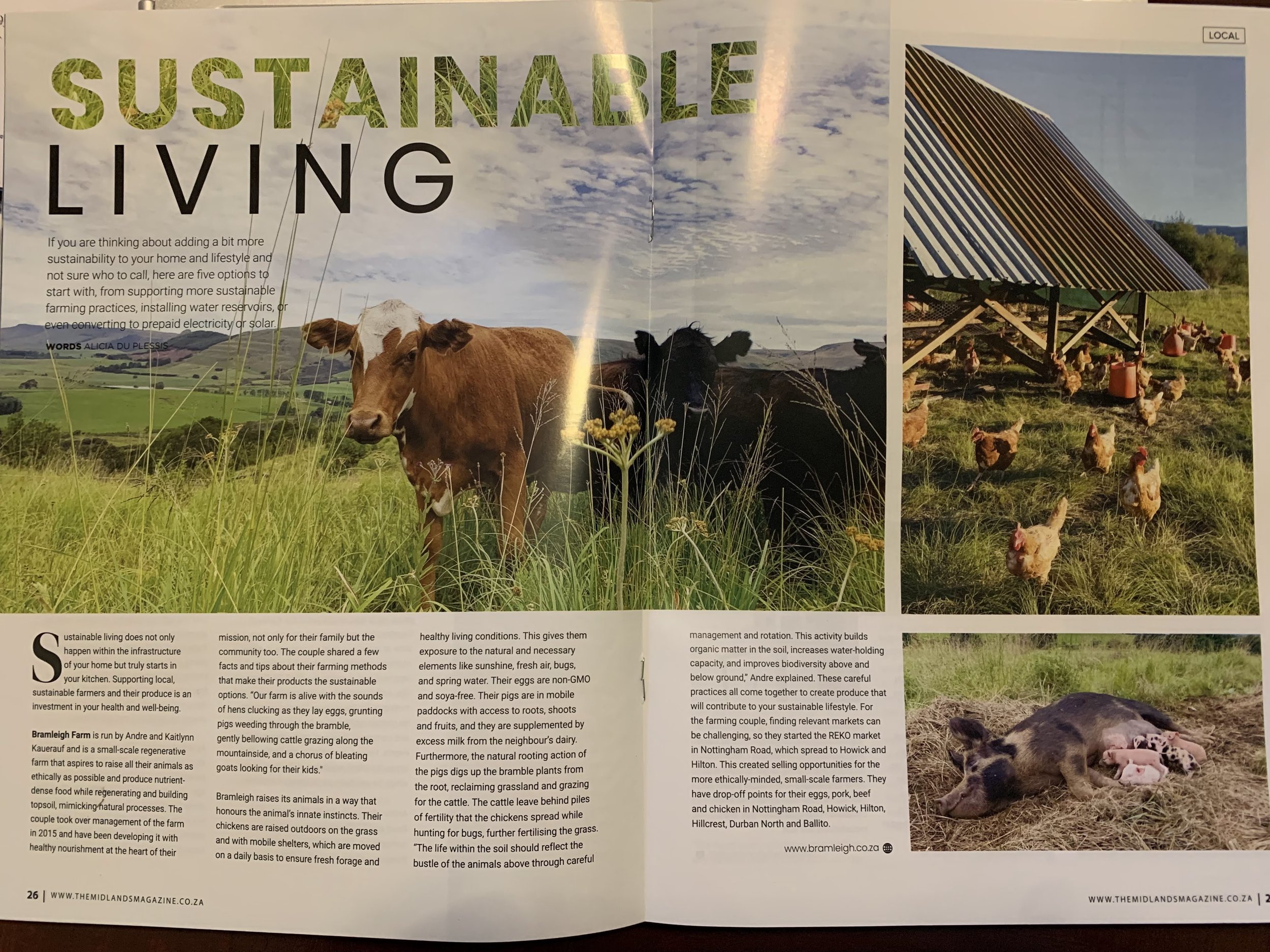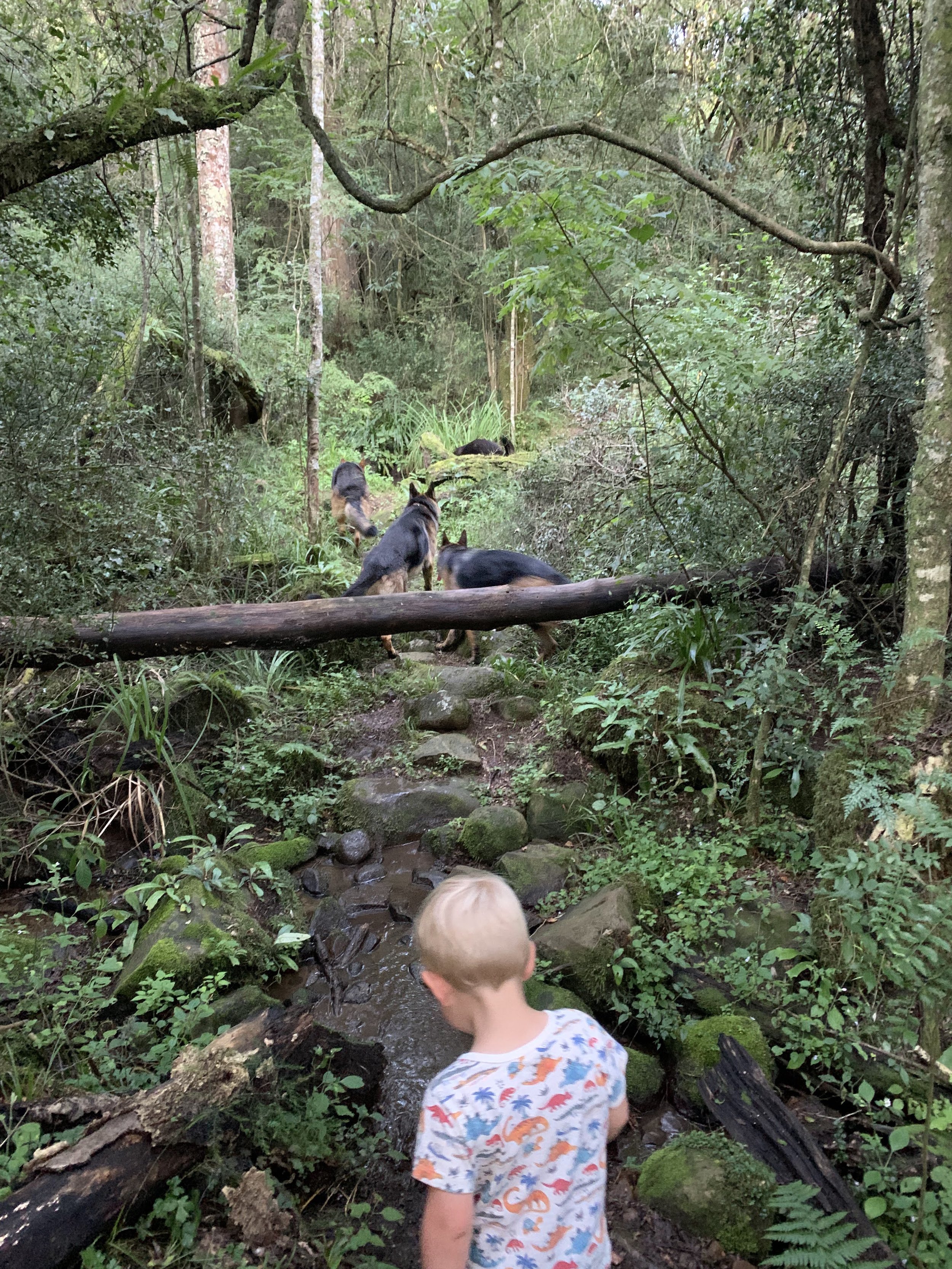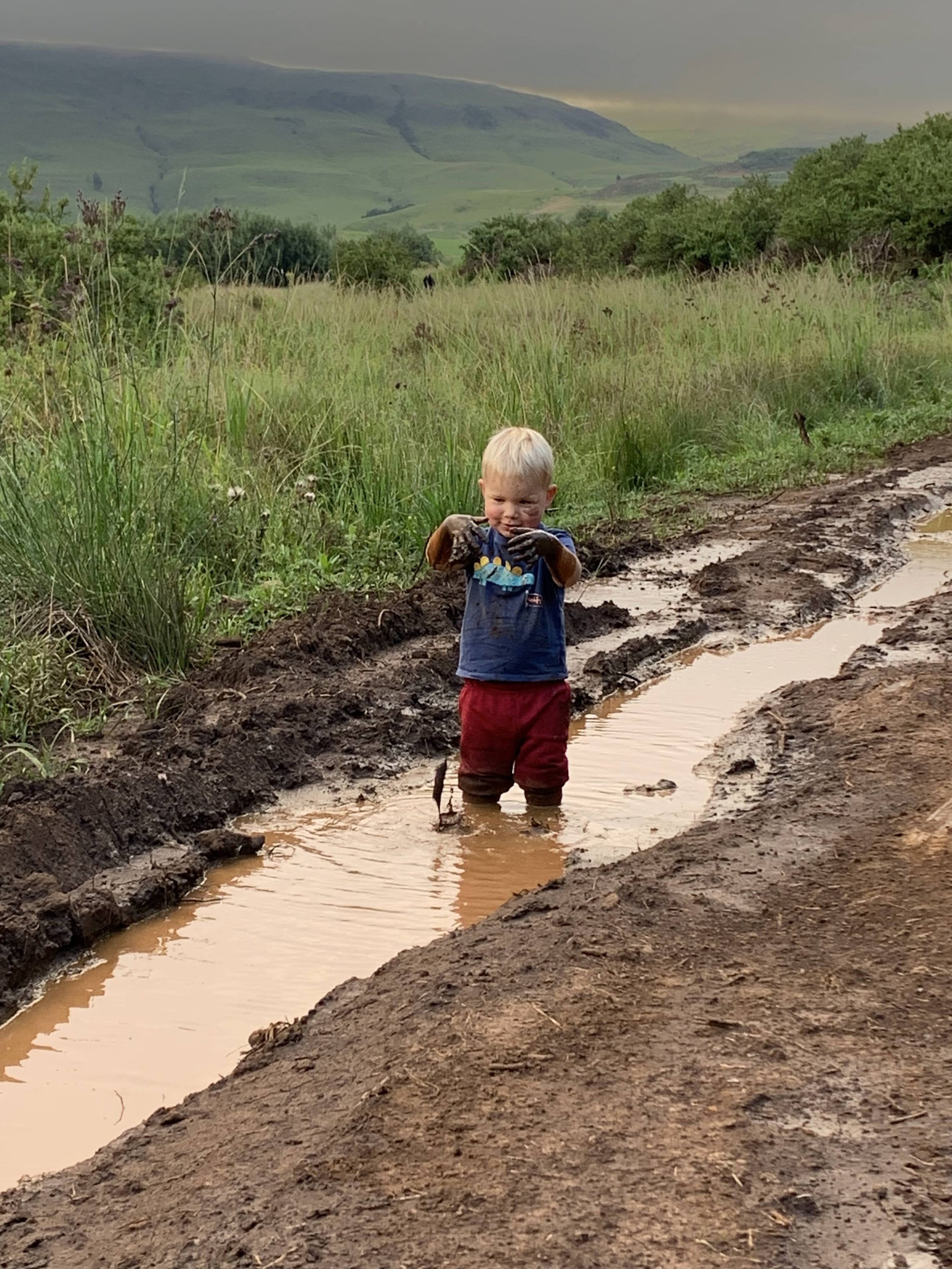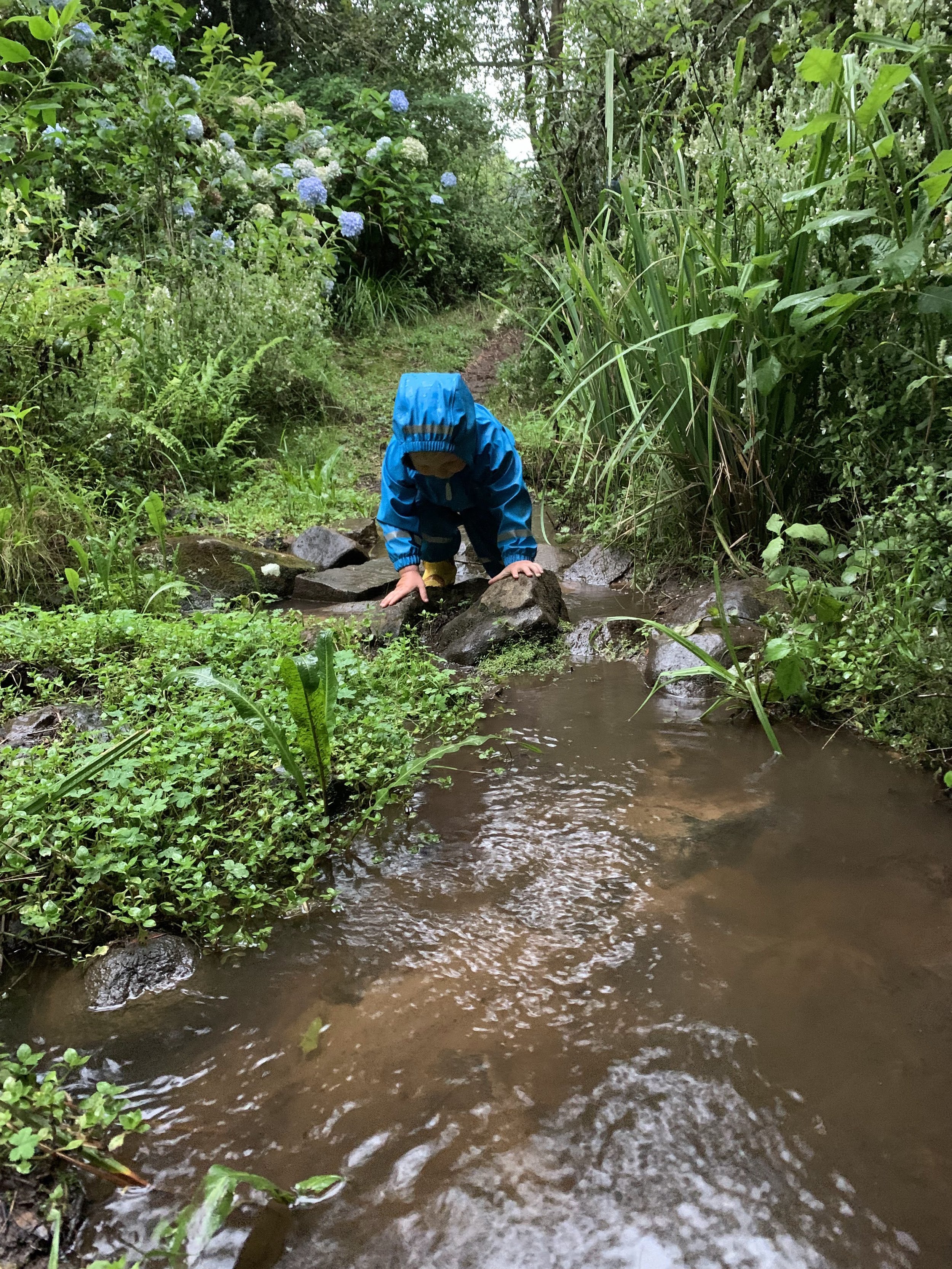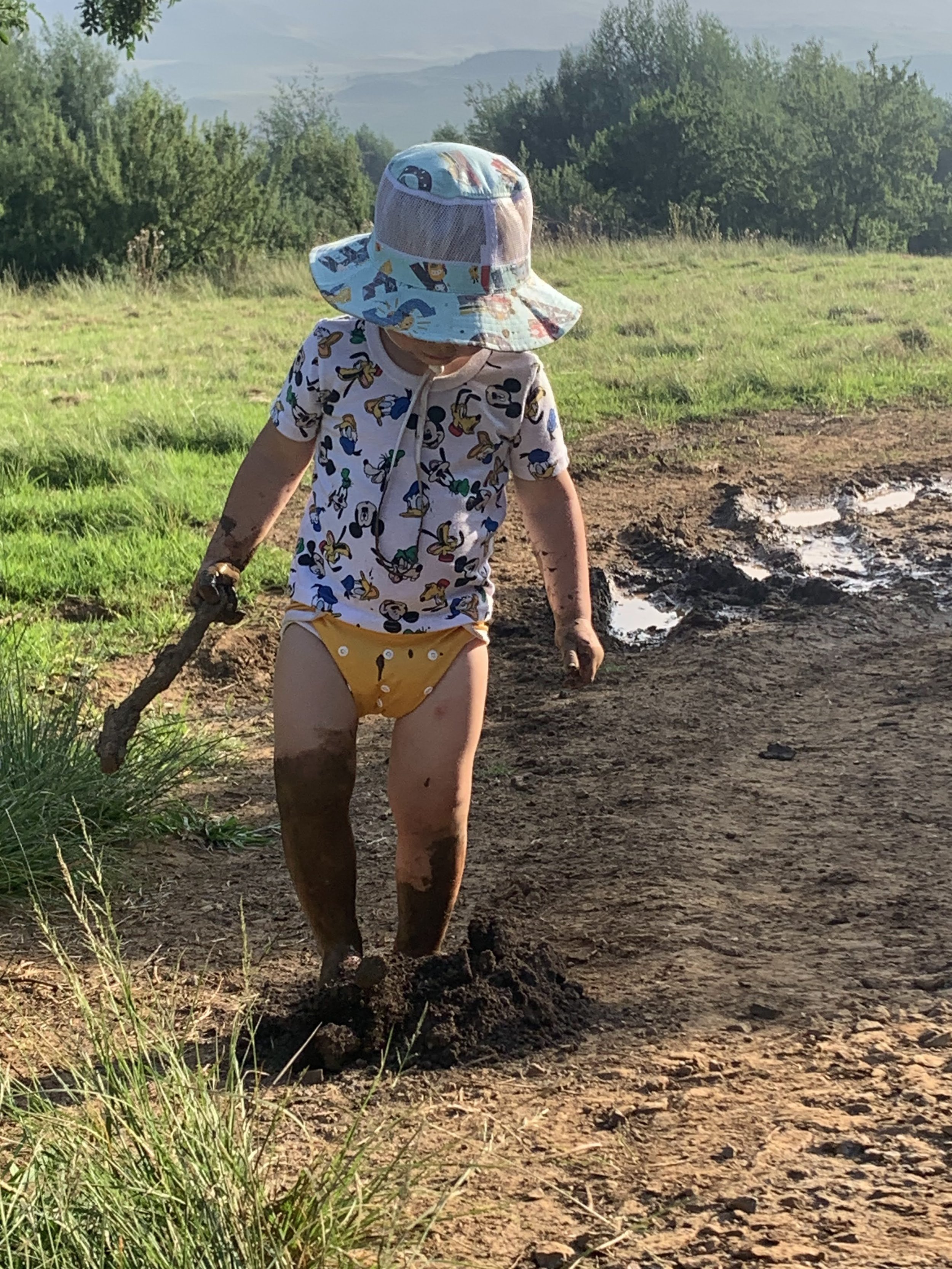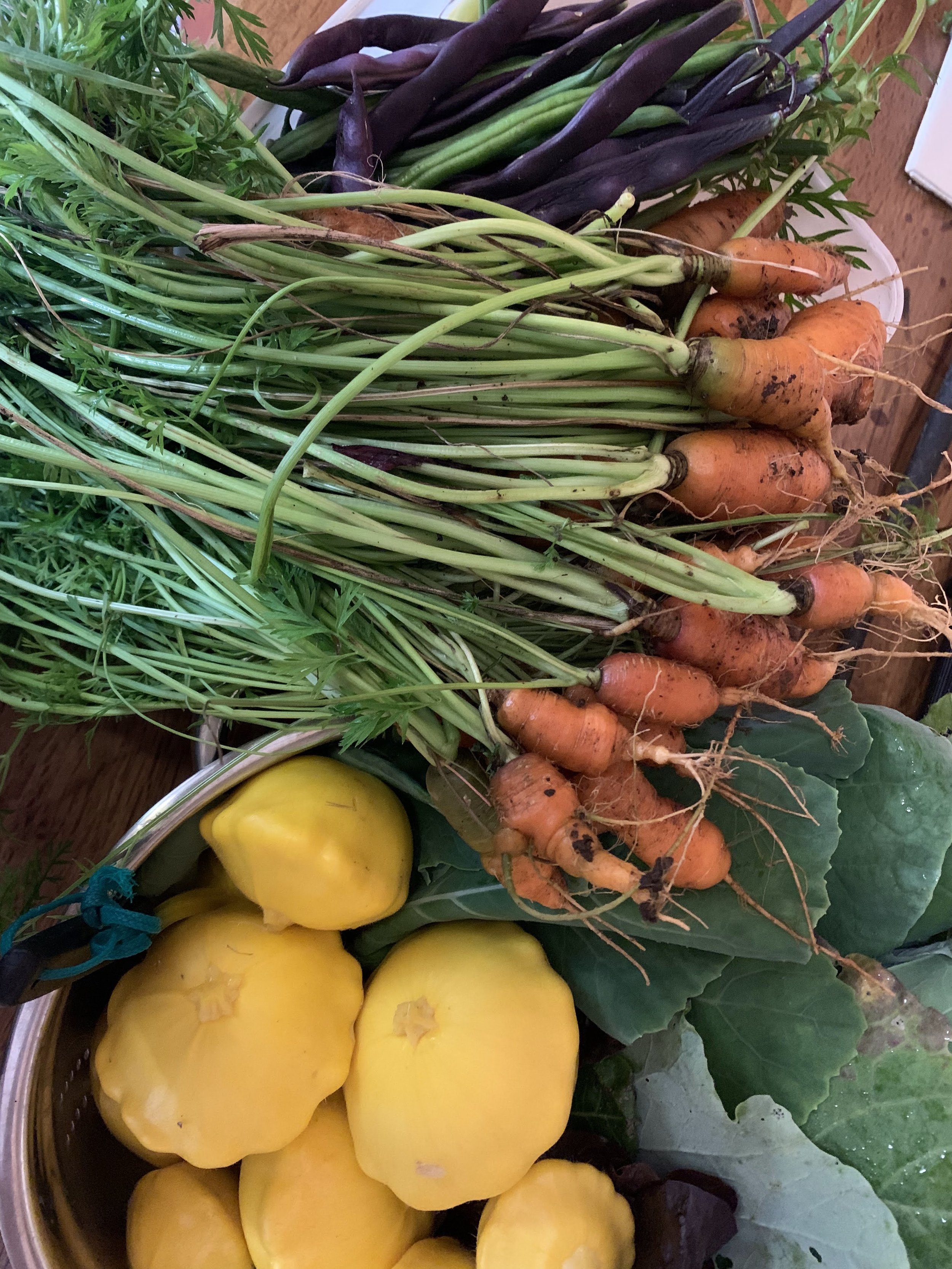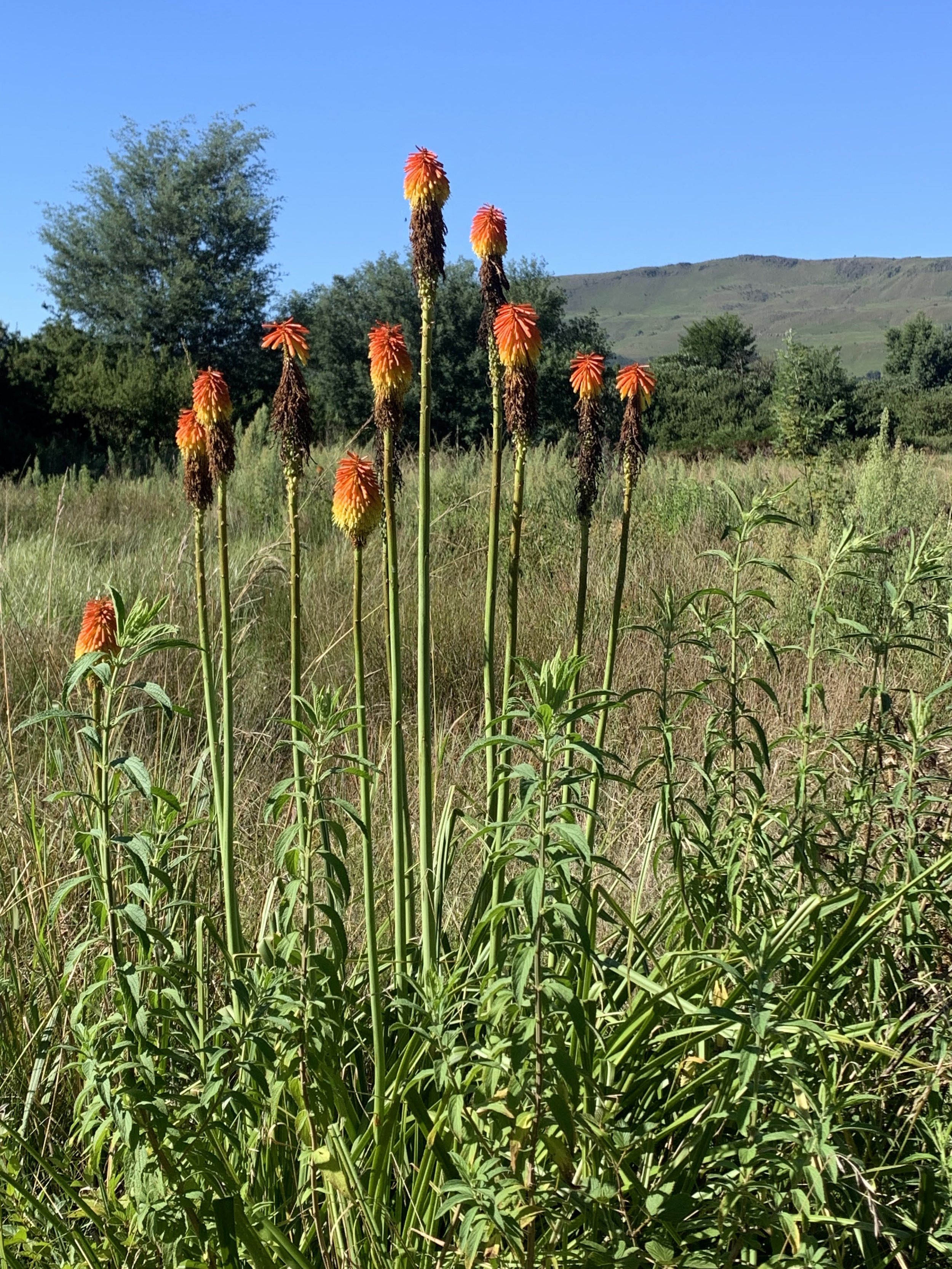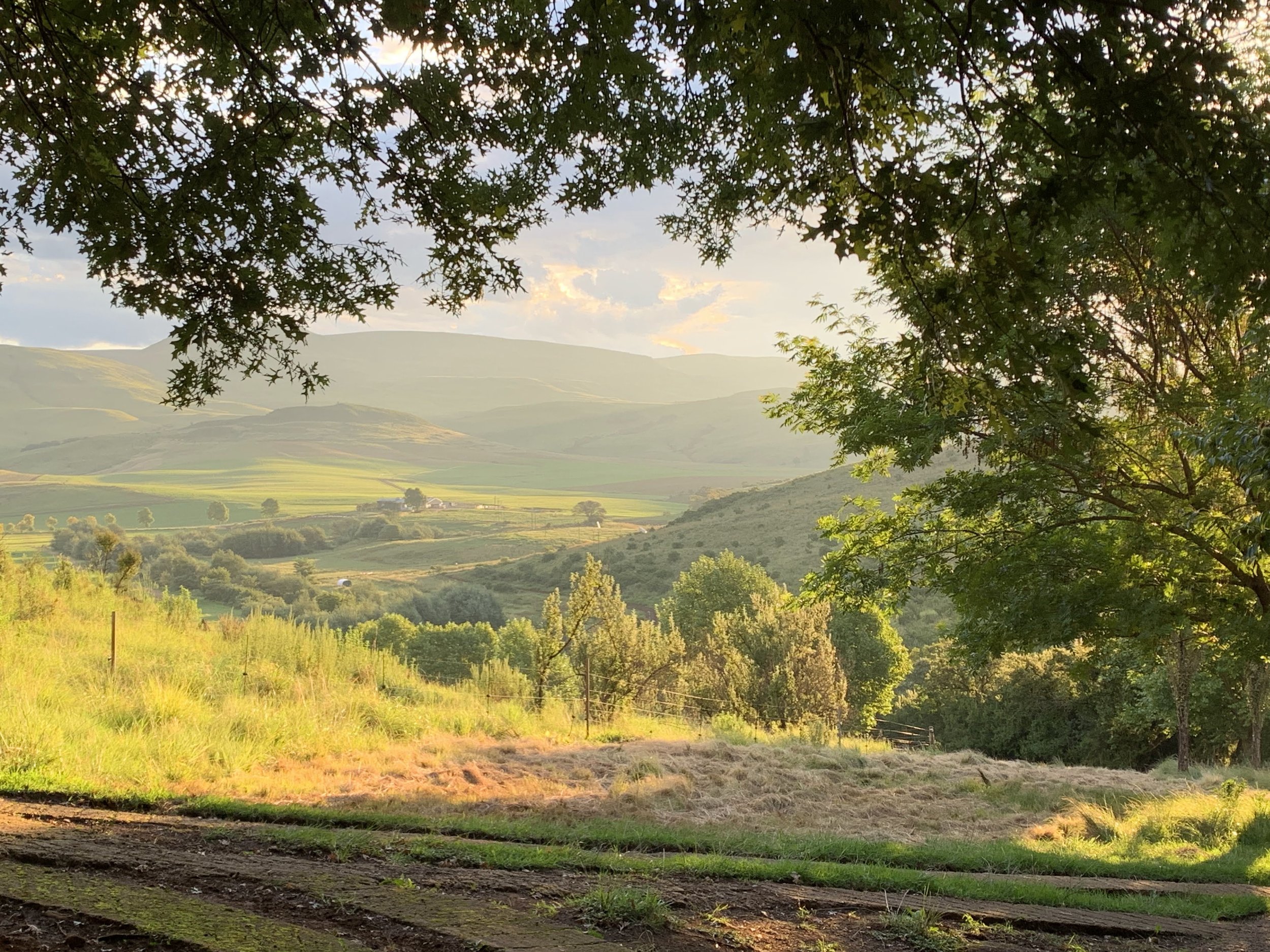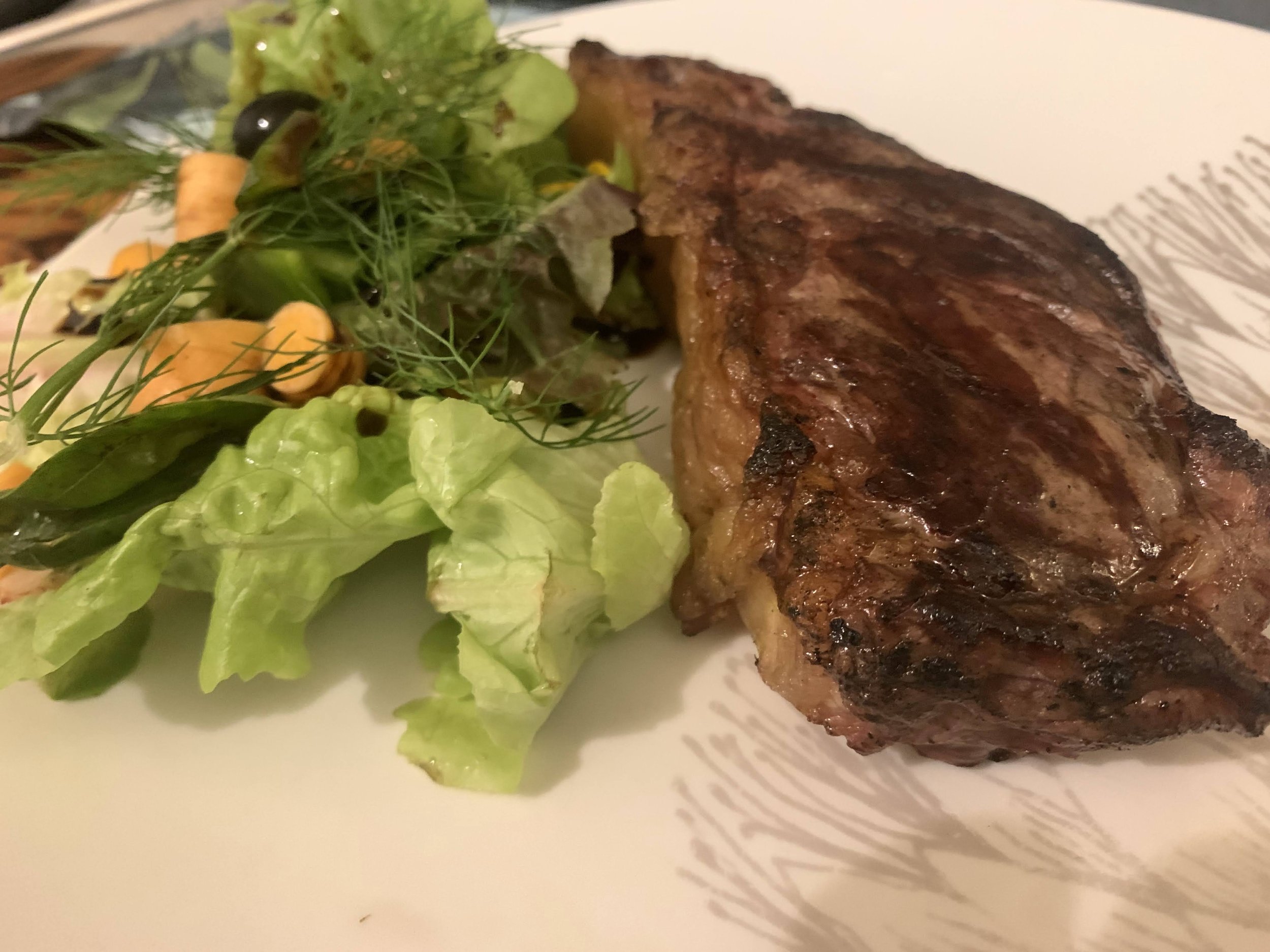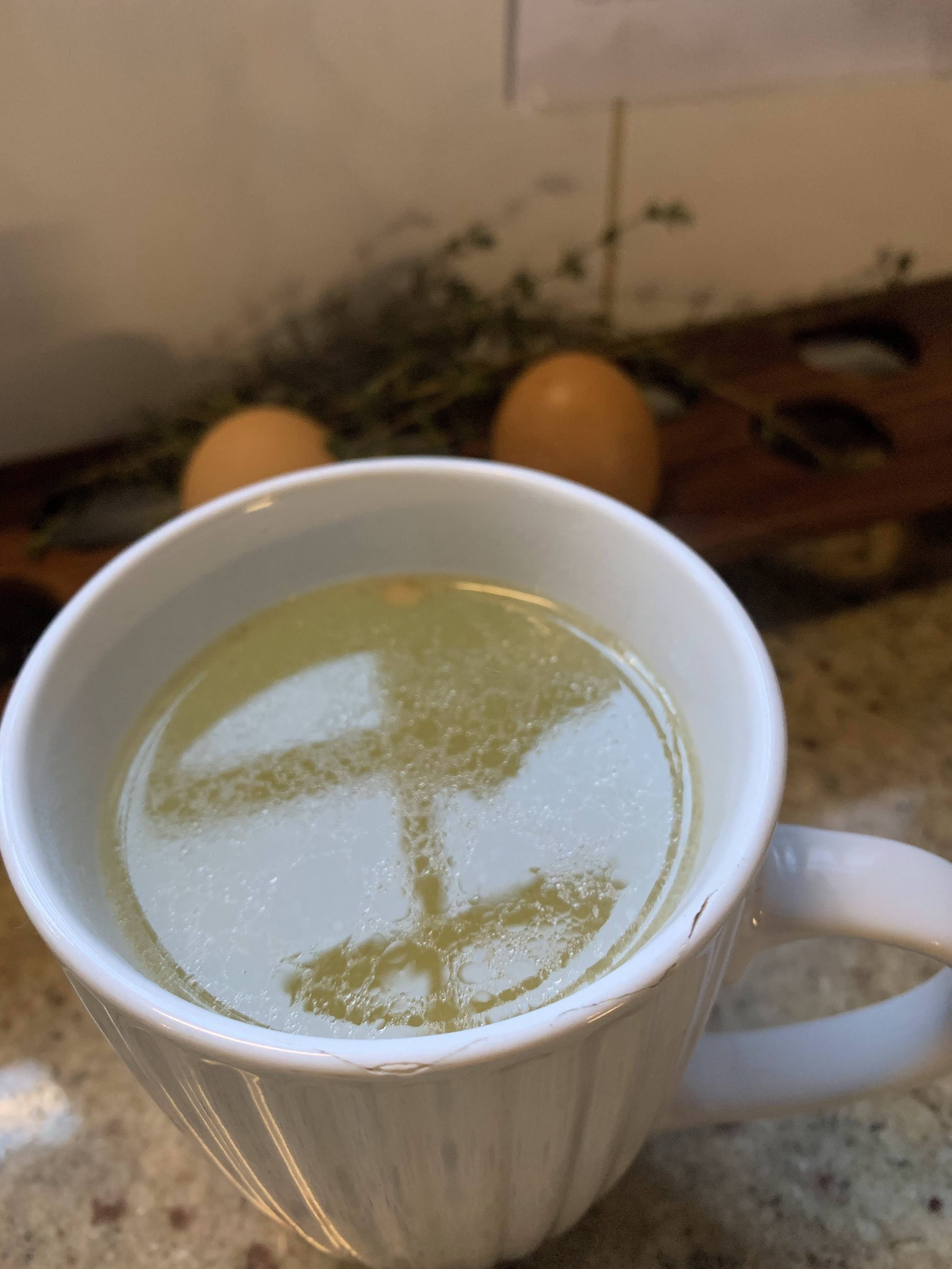Summer 2022 & Autumn 2023
We’ve been listening to a lot of country-style music lately. A more modern take on the original kind where the dog runs away, and the horse is sick, and the cows die, and the guitar breaks… We have a new understanding of this kind of music nowadays! We laugh, but the last season felt like a country song! Slow southern drawl, venting problems, trying to sound upbeat but actually one just needs to get these off the chest!
I write this, tongue in cheek, but it was a tough, tough season. This might also be why our Summer and Autumn blogs are being combined into one… and sent out mid-winter!
A few weeks ago, our vet popped in at REKO to have a chat after seeing our bakkie parked there. About four or five us swarmed the poor guy asking for help! And he explained that we are not alone, everyone has struggled. After an extremely wet summer, everyone is worn out, and the animals have had an extremely tough time. Poor weight gain, low fertility, disease, low immunity - the list goes on.
We are not ones to jump into using pharmaceuticals. We believe in building natural resiliency in our animals, allowing them to fight just a little to build strength. Second step is treating naturally, and resorting to pharmaceuticals right at the end. This season, even our strongest animals suffered through this approach. Animals can usually do cold or wet, but not both. This summer was both. And boy, was it wet!
pasture raised eggs
Our laying hens bore the brunt of the season. We purchase our birds from an excellent supplier, just before they are ready to lay. This gives them a week or two to settle into their new home with us before they begin laying, and getting down to business. This change in home is tough on the birds. Birds that we received in December only began laying fully in May! Sourcing good quality nonGMO feed has been a headache. We are fortunate to have teamed up with another pasture raised egg producer, who makes the decisions on the feed to use. This means we can struggle through these challenges together. But feed issues have been nothing short of a disaster for our birds. We have had to supplement this extremely expensive feed to the point of just about no return on our eggs. Low nutritive quality meant our birds were having to eat so much feed that we were giving away our eggs at cost at one point. Worse than this was the strain this put on the birds. Layer hens are racing cars, they need the right fuel or they will leach nutrients from their own bodies to continue producing eggs. Fortunately the birds can still supplement as much as possible from our planted pastures to continue producing quality eggs. But our lay rate went through the floor, while feed consumption went up and up and up, consuming up to 45% more per day. The birds became weak and susceptible so we were boosting them with everything natural we could think of. We had to develop a hospital pen for the first time ever to separate birds that were sick or really struggling, and give some much needed TLC, and provide medications for these separated hens. By the time the truckload of feed ran out, five months later, we were all hanging on by a frayed thread. A new feed is livening the birds up a lot, but just in time for the cold and dark of winter. We are doing everything we can through Autumn to continue to build up the birds’ immunity, reserves and support them to go into winter strong. These remarkable little creatures have still kept producing eggs of exceptional quality, at their own expense. Fortunately so far winter has been gentle to them and they seem to be slowly bouncing back.
goats
After a strong kidding season, our goats were looking good and doing well. As the kids began to wean in mid-Summer, we noticed the mothers not regaining weight as their milk dried up, and the babies began to struggle. Despite access to pastures and veld, the goats seemed to get weaker and weaker. As summer fades, the grass quality drops. The grass puts its energy into making seed, and the nutrition in the grass blade is very low. For goats, this often forces them to eat things they normally wouldn’t and we lost a few animals to poisoning. But for all the lush summer grass around, we could not understand why they felt the need to pick at odd plants. We allow our goats to free range a lot on the mountain, this is their preferred terrain, but it also allows them to self select what they instinctively know they need to eat, especially since 60% of their diet needs to be made up of browse. Despite this, the goats still did not gain weight and improve in health as we had seen in previous years.
We tried high density grazing with them and they did not take well to this idea! We needed more herbivores to graze the grass on the pastures one last time before the grass goes dormant so we encouraged the goats to do this, as the cattle munched their way across the mountain. The goats did not do not do well at all, and their health declined rapidly.
After several losses, and consults with several vets, we learnt that the heavy rain produced lush grass growth this season. But unfortunately, the grass grew so quickly that it did not have the nutritional profile it normally has. In fact, protein content of the grass was a third of what it should be! This explained why all of our animals were suffering. They were filling their bellies, but not getting the nutrition they needed. In the chickens, with feed complementary to our pastures, they were lacking and couldn’t make it up enough from the pasture causing lay rate to drop. In the goats, this same protein deficiency inhibited growth, weight gain and fertility. For both animals, they became weak and susceptible. Knowing this now, we have begun feeding a high protein lick to the cows and goats, and the chickens are on a different feed. It feels like we are walking out of a battle ground, bruised, battered and shattered, trailing a line of hungry animals behind us. But knowledge is power and we can now do something about it, and everyone seems much happier. Tummies are full, the chickens have definitely gained some weight and the goats have some strength back.
grassfed and finished beef
The cows, being much stronger animals, did not have such a tough time but we did see some strain. The new weaner cows, especially, have shown some wear and tear. So, much to my delight, they are housed in a camp close to the house for extra love… I mean… observation, for the next few weeks before returning to the herd.
The cows that we processed this season showed good gain and fat cover compared to last year so they have managed to do well, despite the challenging season. And the response to our beef products has kept us hopeful.
(pic below: cows grazing ahead of the egg mobiles, leaving fertility for the chickens to spread and sanitise. In the foreground, an area on the front face of a koppie ready for pigs to bash some bramble)
outdoor pigs
The pigs have been as happy as pigs in mud. They have had mud baths all season without having to build any themselves! They have continued to grow, and breed, and destroy bramble. Their impact has been phenomenal - the wet weather meant the soil was soft so they could do some great tillage, the cover crop seeds germinated well and we have opened up expanses of pasture.
Our pigs though, are officially moving house! They have opened as much pasture as we have need for now, and they are going to live on our neighbour’s farm for a little bit. We will keep two pigs here, and our neighbour will use the rest of the pigs to clear bramble. He has a veggie farm so the pigs will have a great diet of scraps, and he is closer to the dairy than us, so he will continue feeding them the same milk as we have been doing. It is hard to see the animals go but it is a great opportunity for learning, sharing, community. And they’re just down the road so we can visit them anytime. Our first visit was after 10 days. They seemed to recognise us but were so content, with so much food around, sunning their happy bellies in amongst the bramble. We left feeling such peace at seeing their bliss. Happy piggos!
pasture raised chicken
The experience with the pigs has been much like our pasture raised broiler chicken journey. Last year was also very wet. On our farm we have only very flat sections or very steep slope. Slopes are not ideal for chickens, and the flat areas flood easily in wet weather. A friend near Wartburg has raised the last two batches of broilers for us, and we have done every other batch since January, to keep consistency. This meant that we didn’t have to force chickens through the wettest part of summer, where his farm has a warmer climate making it more suitable.
Last year, our broiler pens nearly flooded and we lost a lot of birds. We did not want to experience that again. It has been so encouraging to work with someone, and has helped us keep our production going.
In March, our back up power system was struck by lightning which further reduced our capacity to raise broilers since we could not risk not being able to keep them warm during load shedding in the brooder phase (first two weeks). Our friend has been able to keep going, and he can extend further into the beginning of winter than we can, which again, is important for helping us keep a consistent product.
Using a local, smaller abattoir has made such a difference for us, closer to home, and processing days are not so stressful. It means we can only do smaller batches at a time so we are rebuilding a brooder to accommodate this change and planning ahead for spring.
learning
In February we ran our first Follow the Farmer two day intensive where participants where totally immersed in the goings on of the farm from egg collection, to processing animals, marketing, data collection, accounting, and everything in between. In true form, the goats delivered an exemplary learning opportunity, with several cases of bloat, giving a real experience of how the day does not end at 5pm! We were planning to run more of these courses this year but the season just had us running from pillar to post, so we’ll try again next year. Participants were involved in a full day on the farm, as well as meals and produce from the farm, spending time getting to understand us, our decision making, our mindset, our values and how these inform our business and farm.
We have run several kiddies farm tours which have been great fun, including a little school!
Andre was interviewed on a podcast (view here:) We have enjoyed these ways of giving back and being more involved in our community. We hope to expand of some of these ideas as the year progresses.
REKO Markets were featured in The Witness, and Bramleigh Farm was featured in the Midlands Magazine.
We have had the blessing of experiencing mud through a child’s eyes again, the mystery of the forest, and the joy of being present.
As we lick our wounds of the last season, we realise just how much we have grown as a business and as individuals, just how much knowledge we have gained. These are the school fees we pay. These challenges have shown us the power of community and context. We have done some serious thinking about the context we find ourselves in as a piece of land, as a business, as a family. Working with others is encouraging and we can support one another. These challenges have been further exacerbated by the current economic situation and the power crisis our country is in, complicating things further. Customers buy less meat as they are worried about freezers defrosting with endless power outages, costs of production are constantly climbing from one week to the next, and the buying power of money getting less and less for us all. Times are tough.
But not a day goes by that we don’t feel grateful for the wide open spaces, the fresh running water and power that we have, as well as the opportunity to raise our own food. And we would not have that opportunity to raise our own food without the support of a community behind us.
So to you, our community taking the time to read our struggles and successes, for your support in whatever form, THANK YOU!

